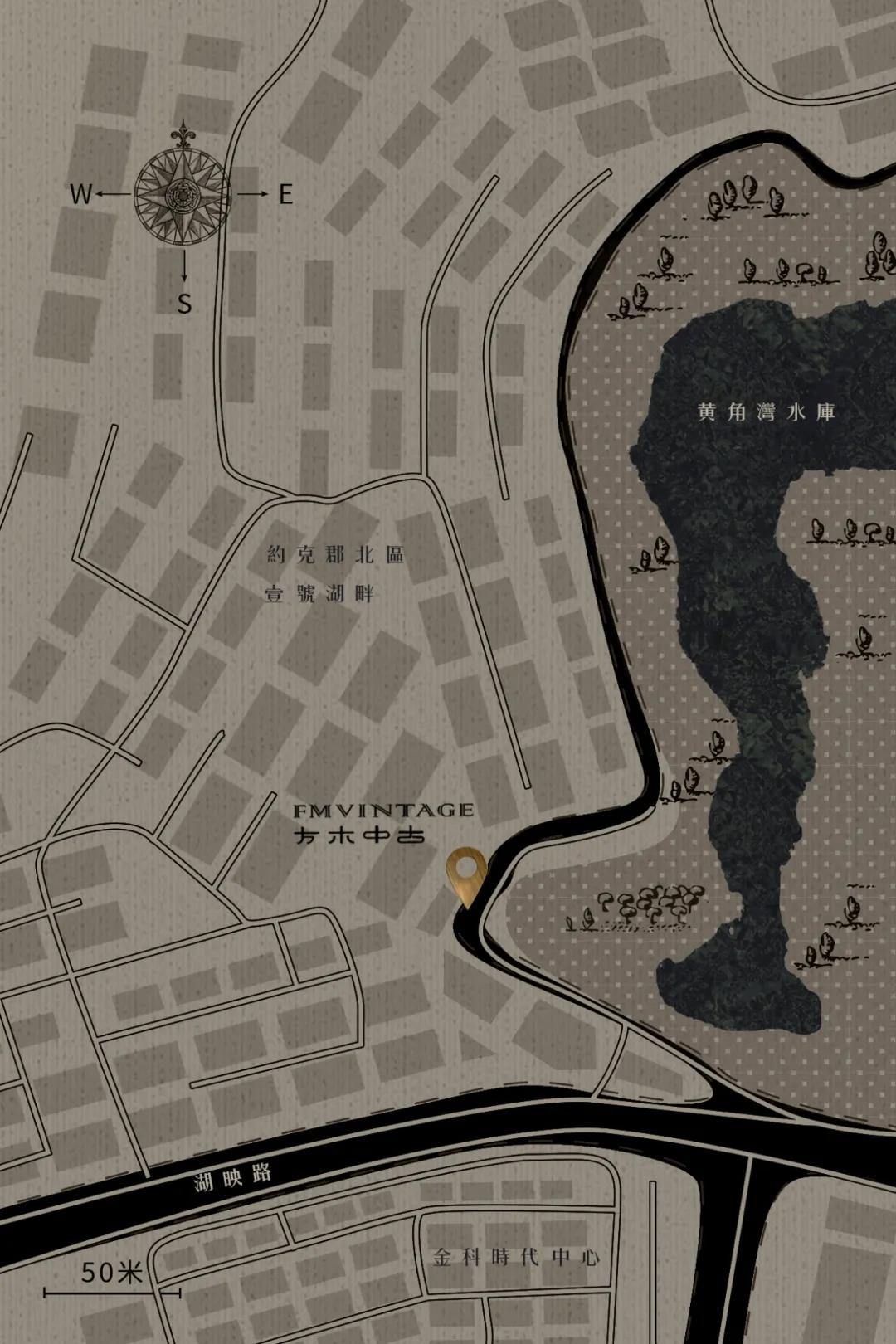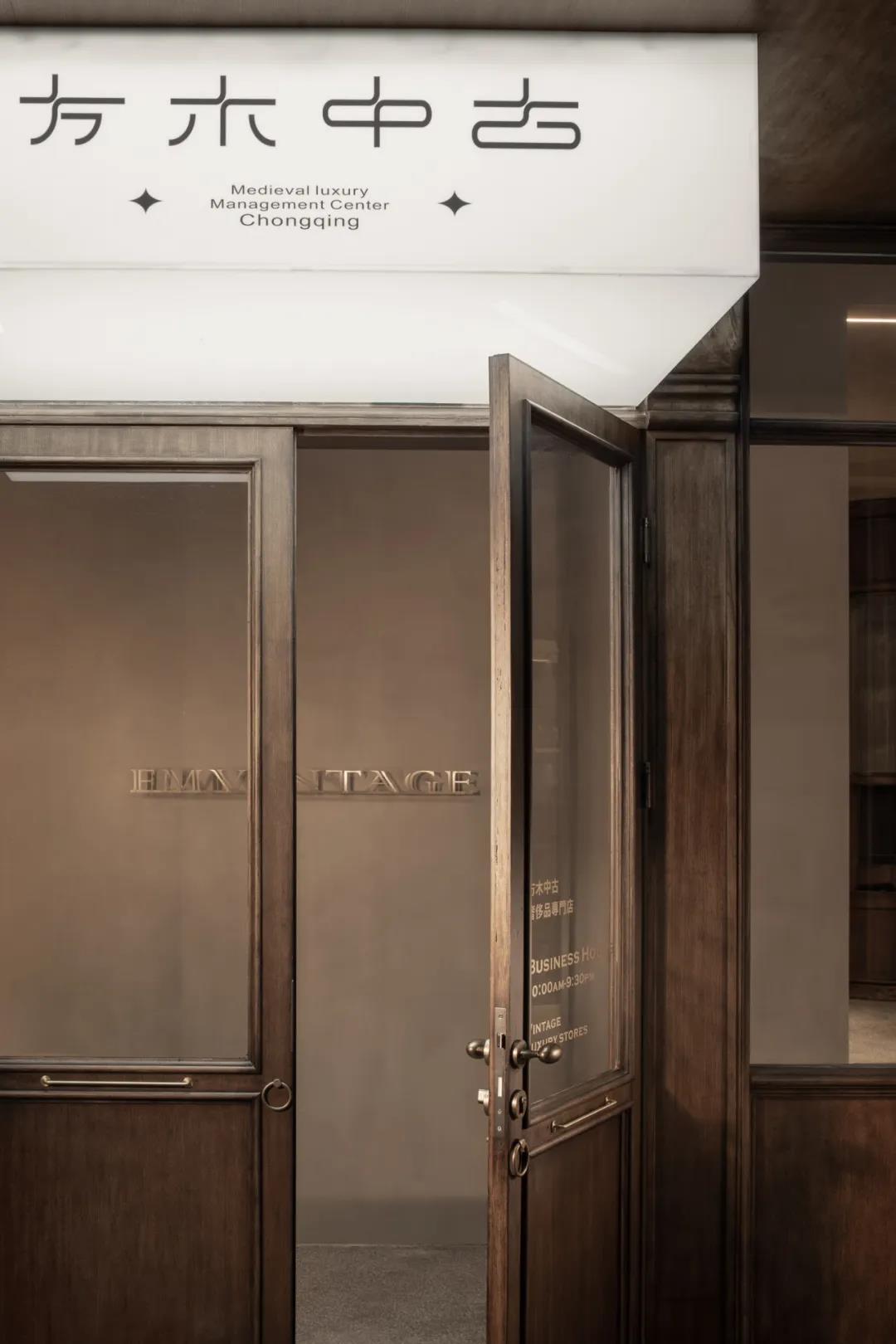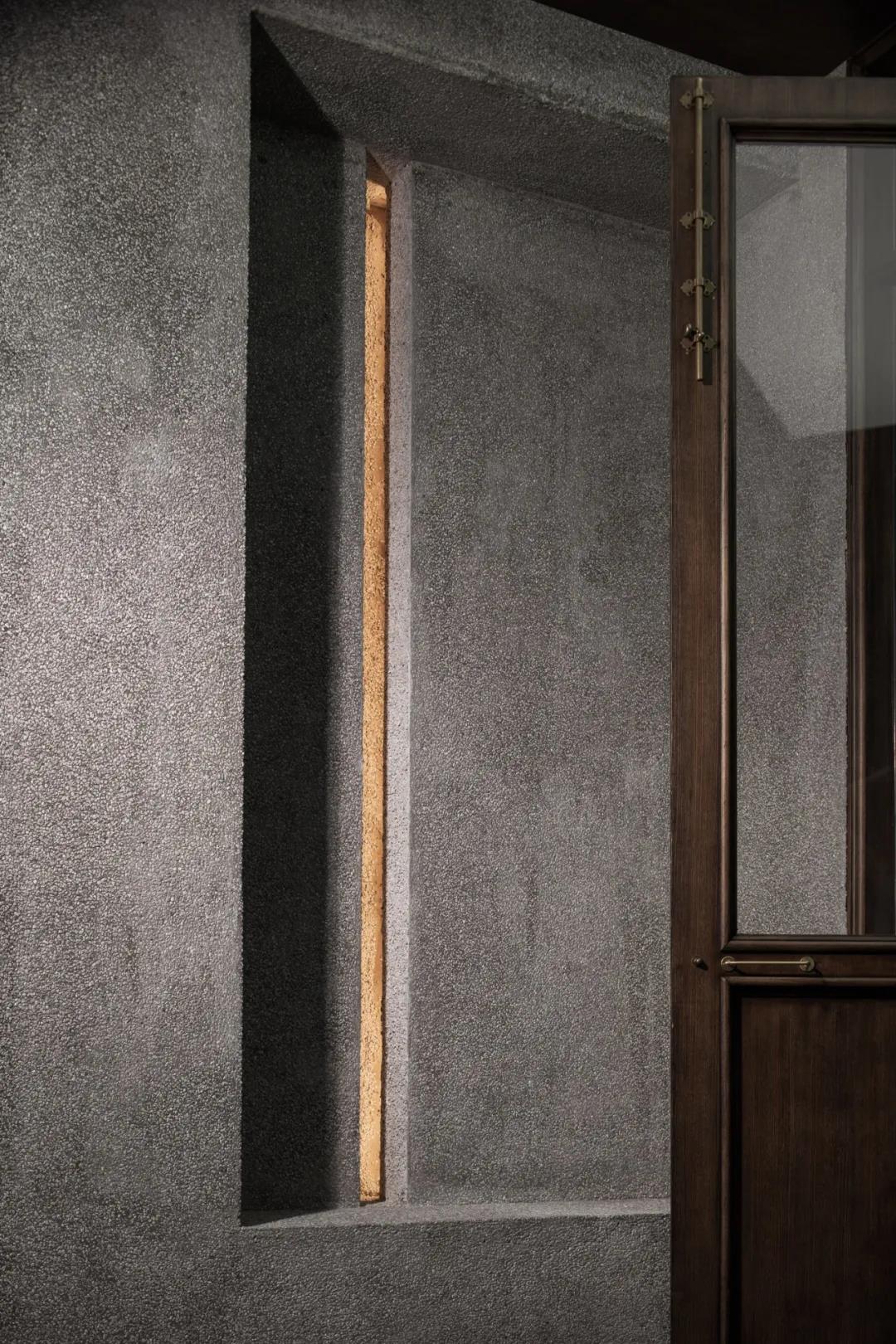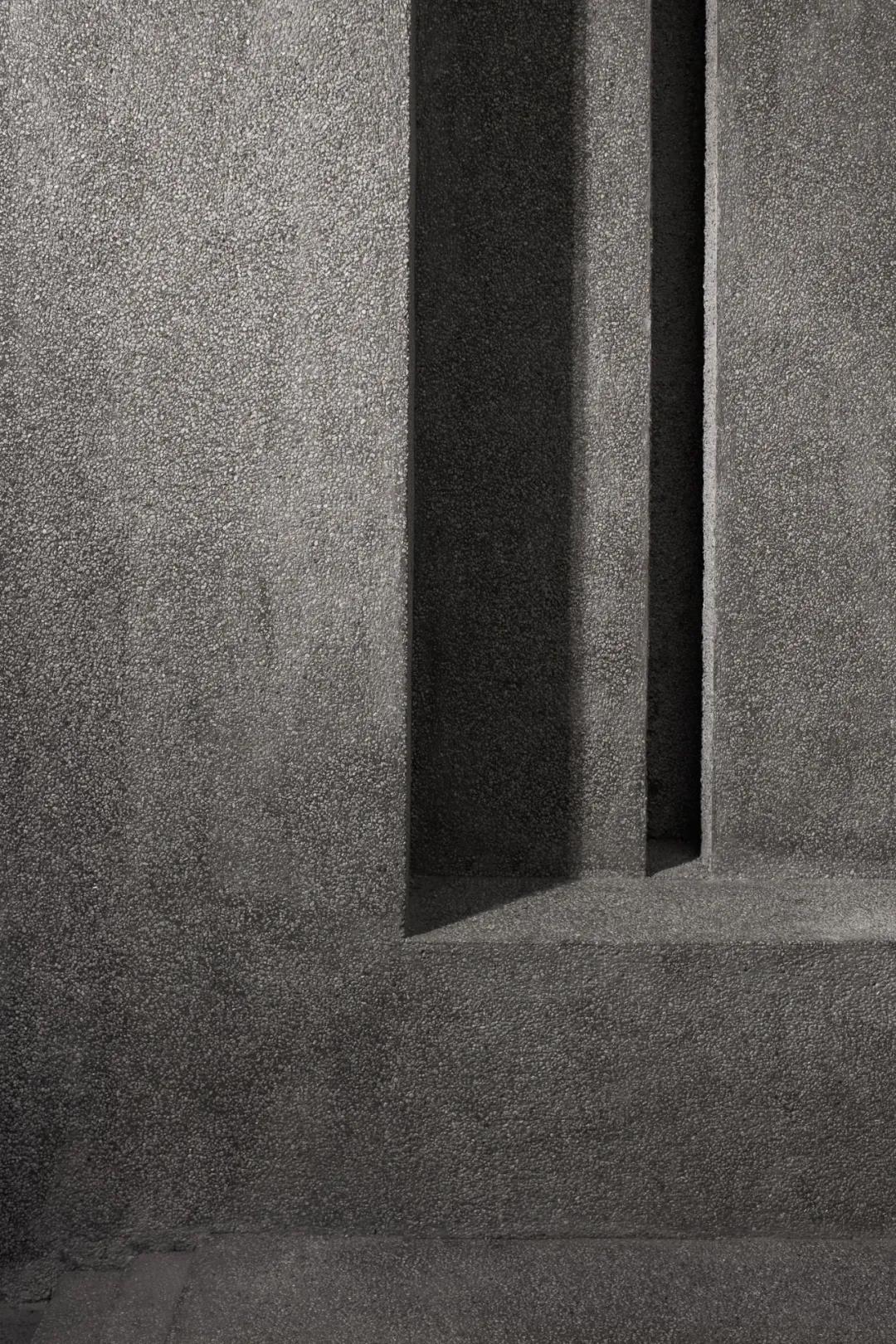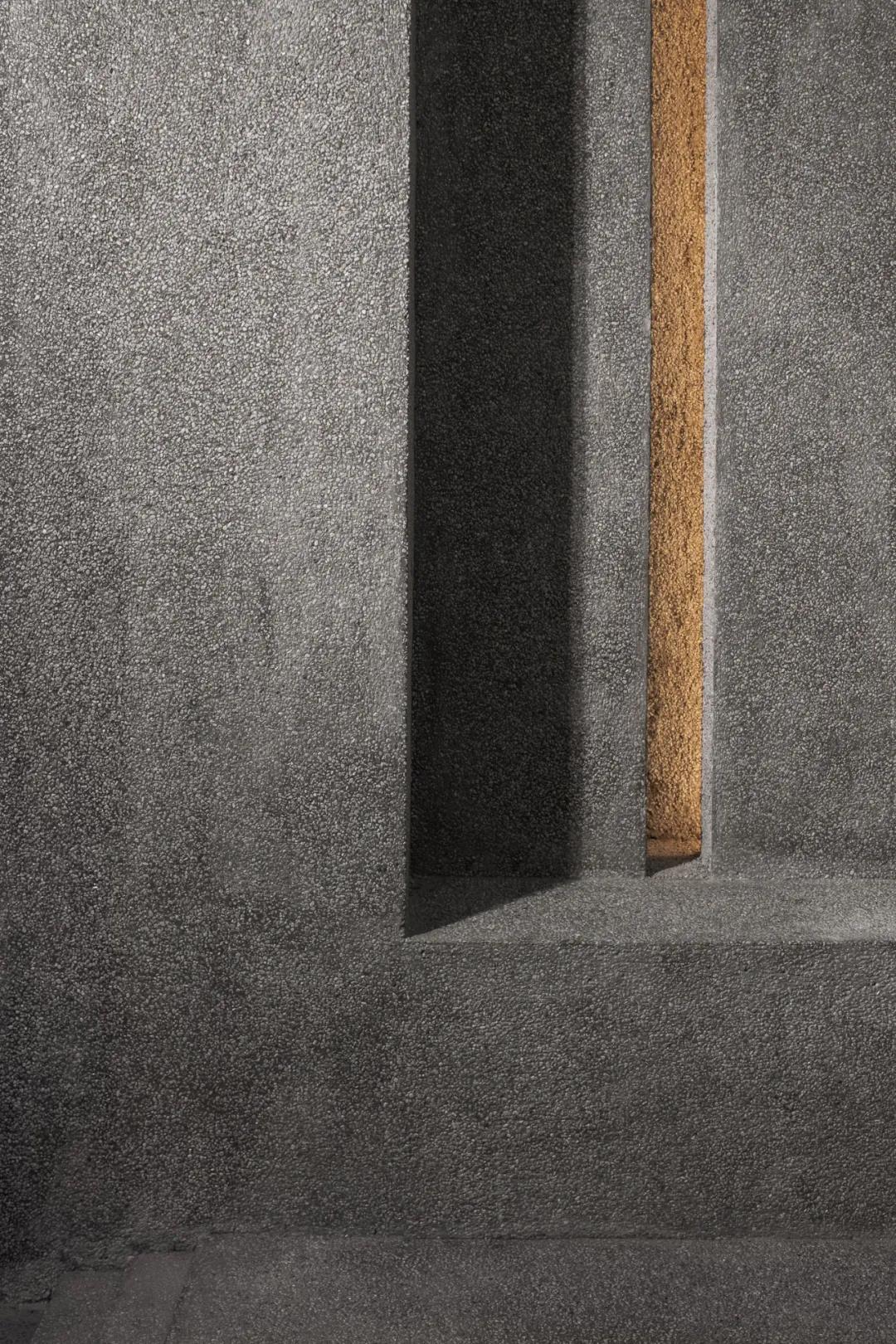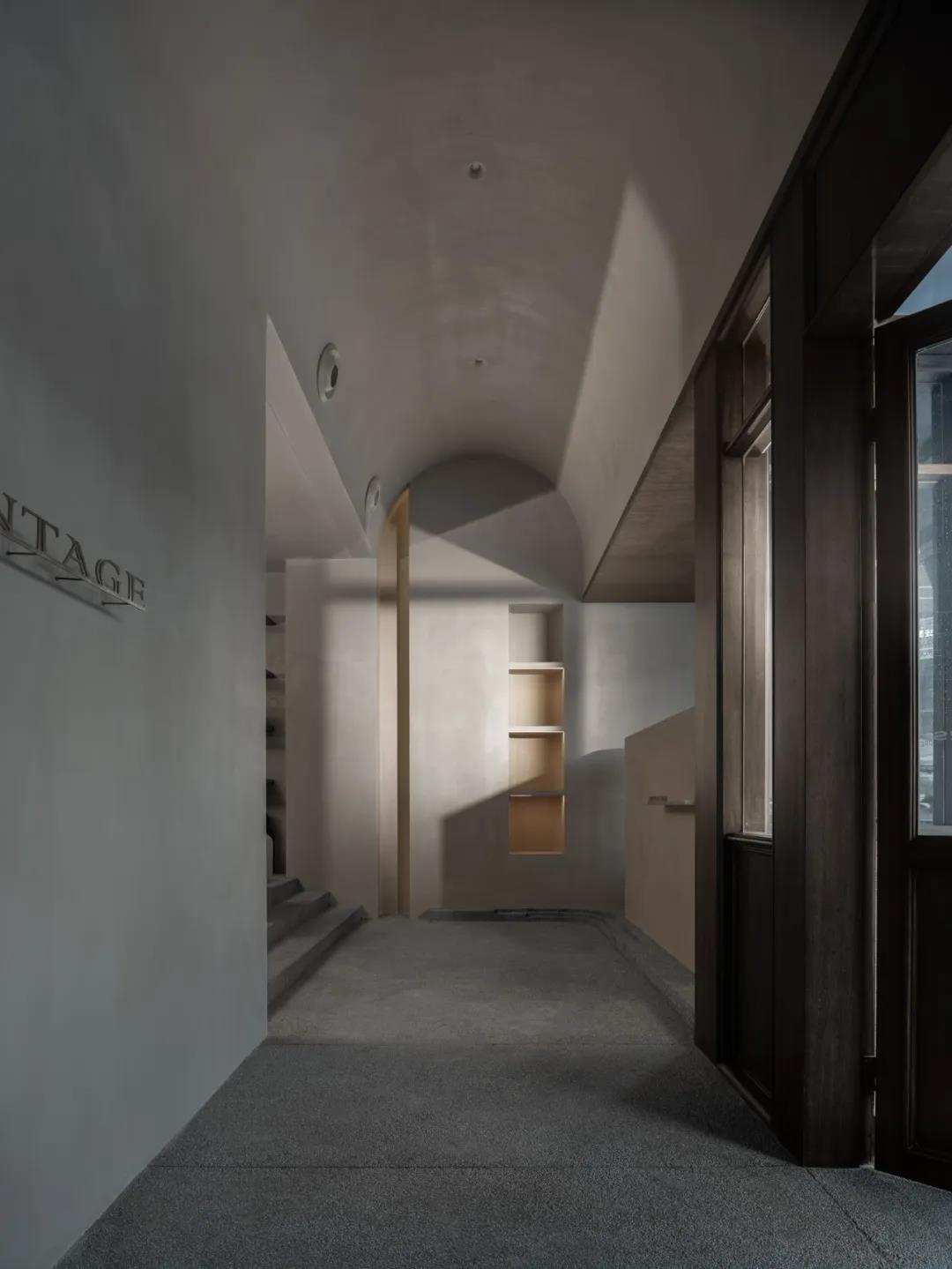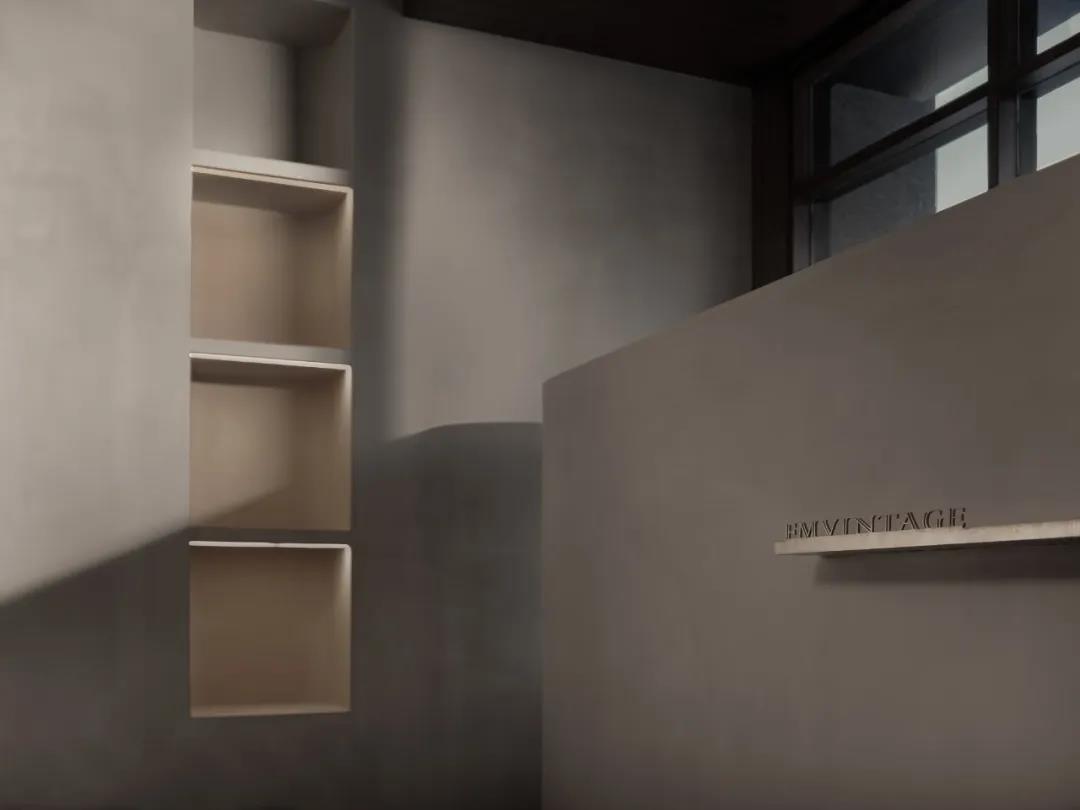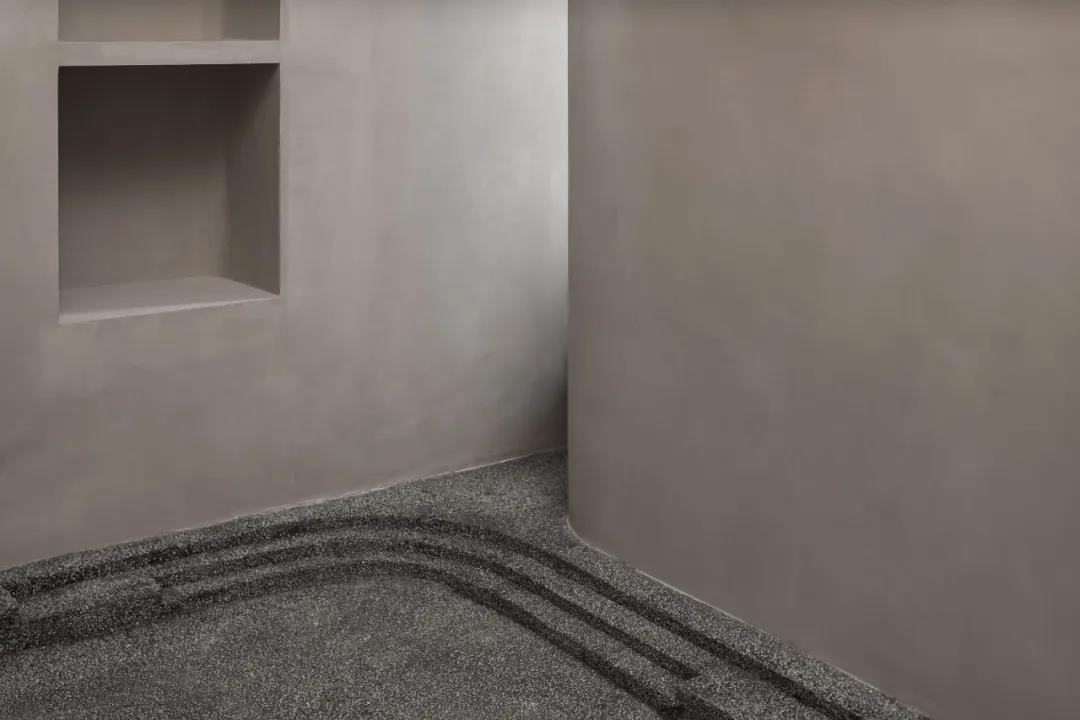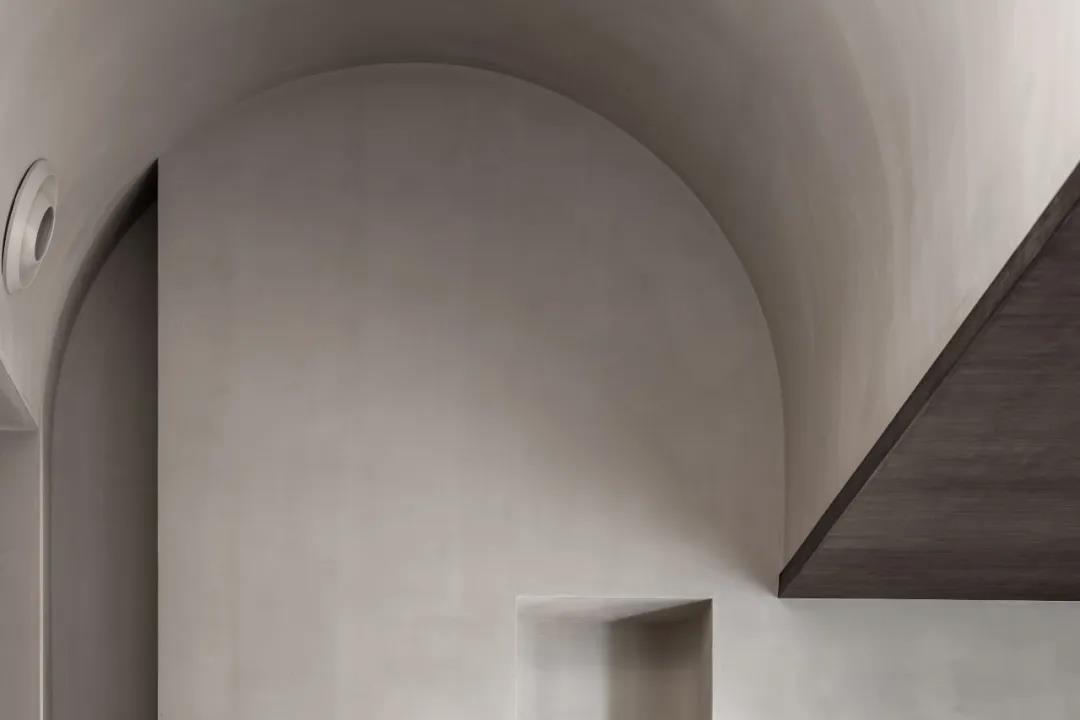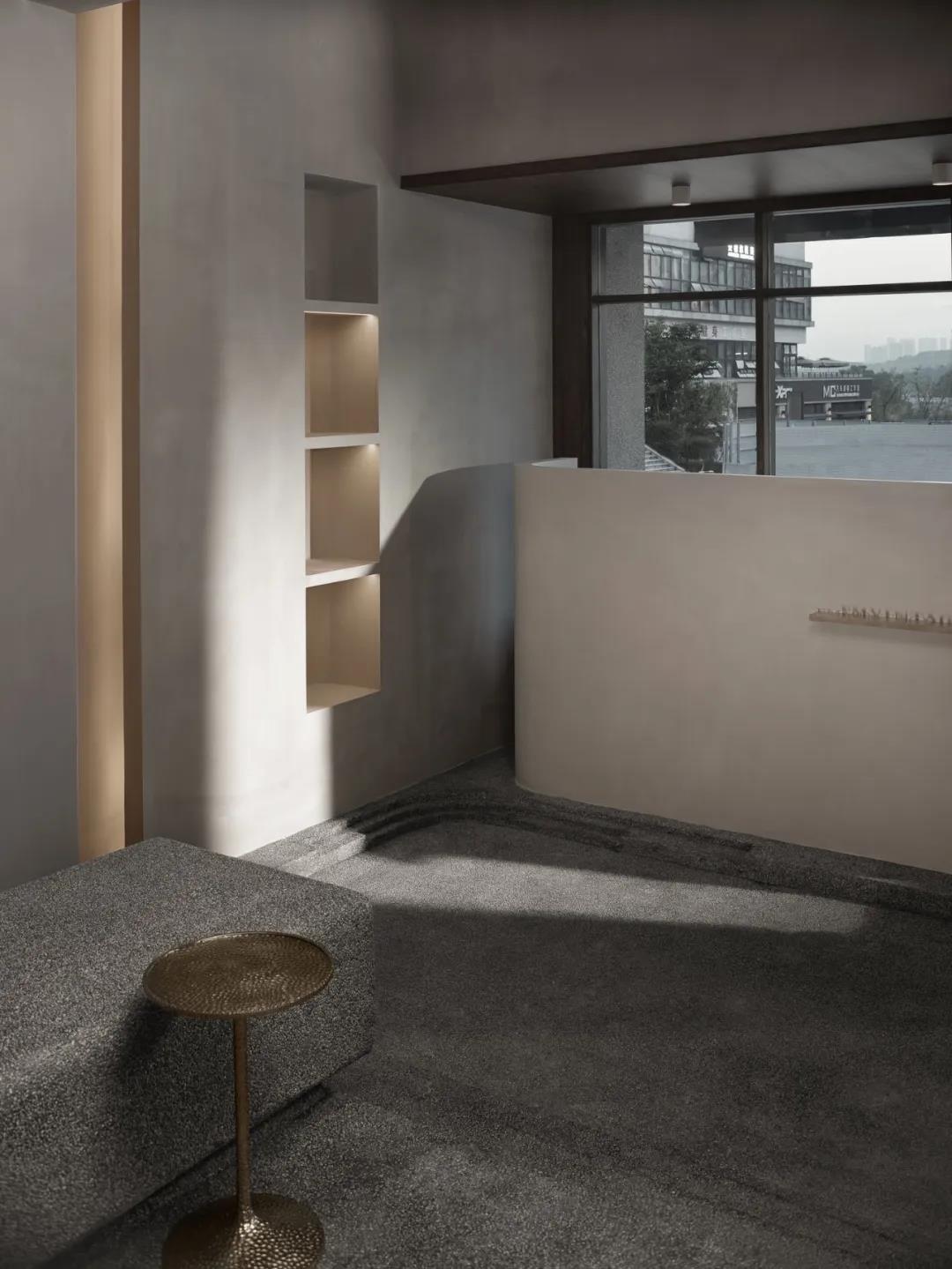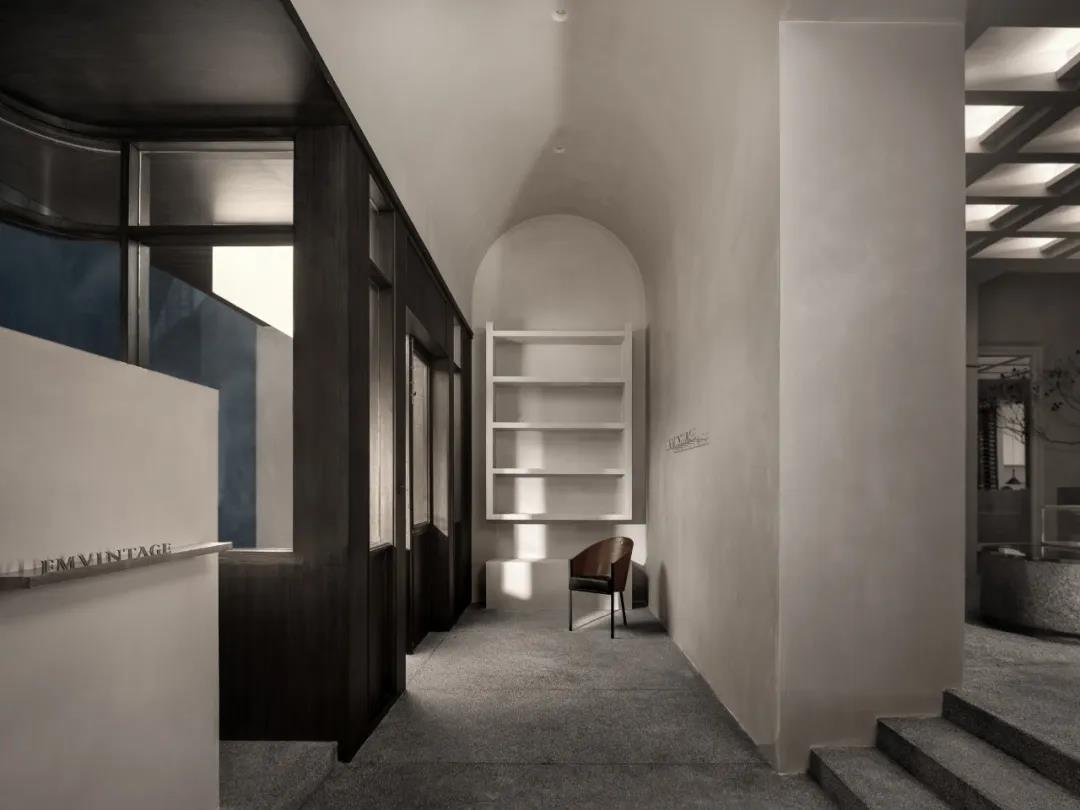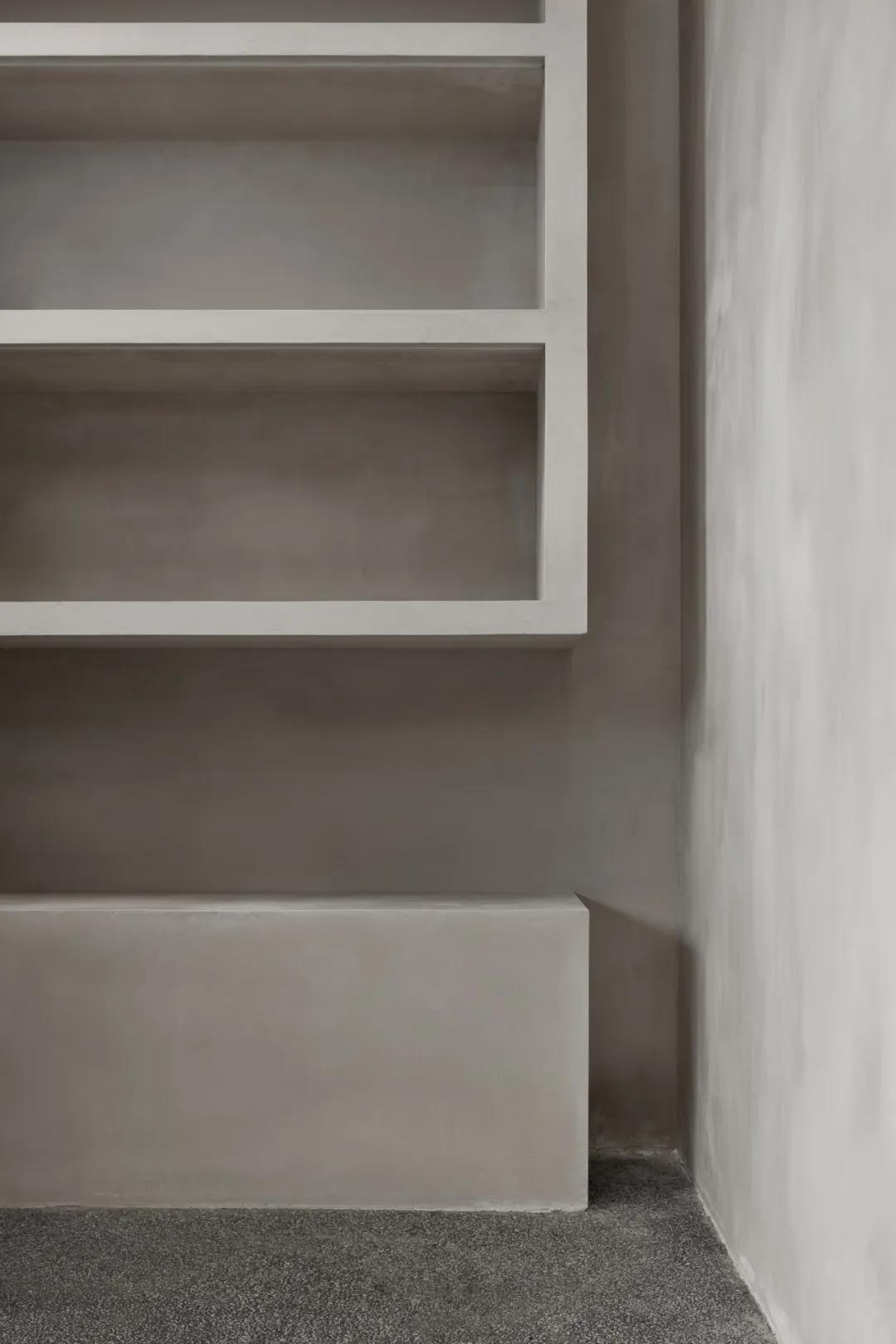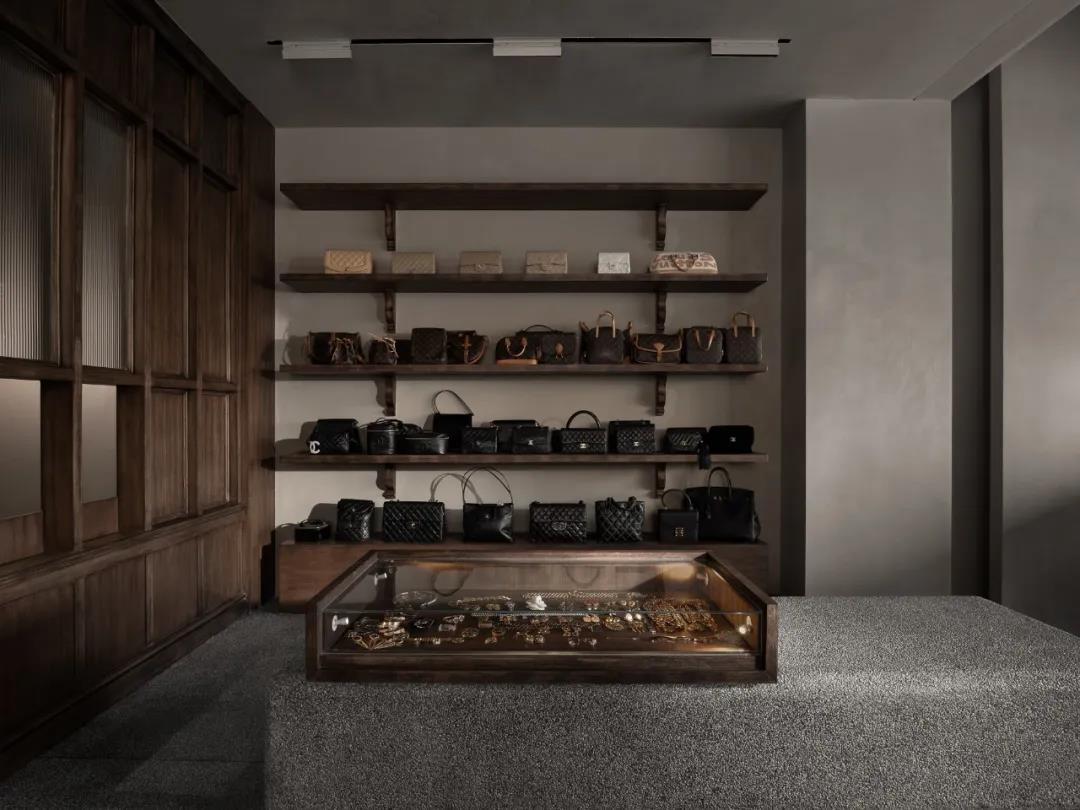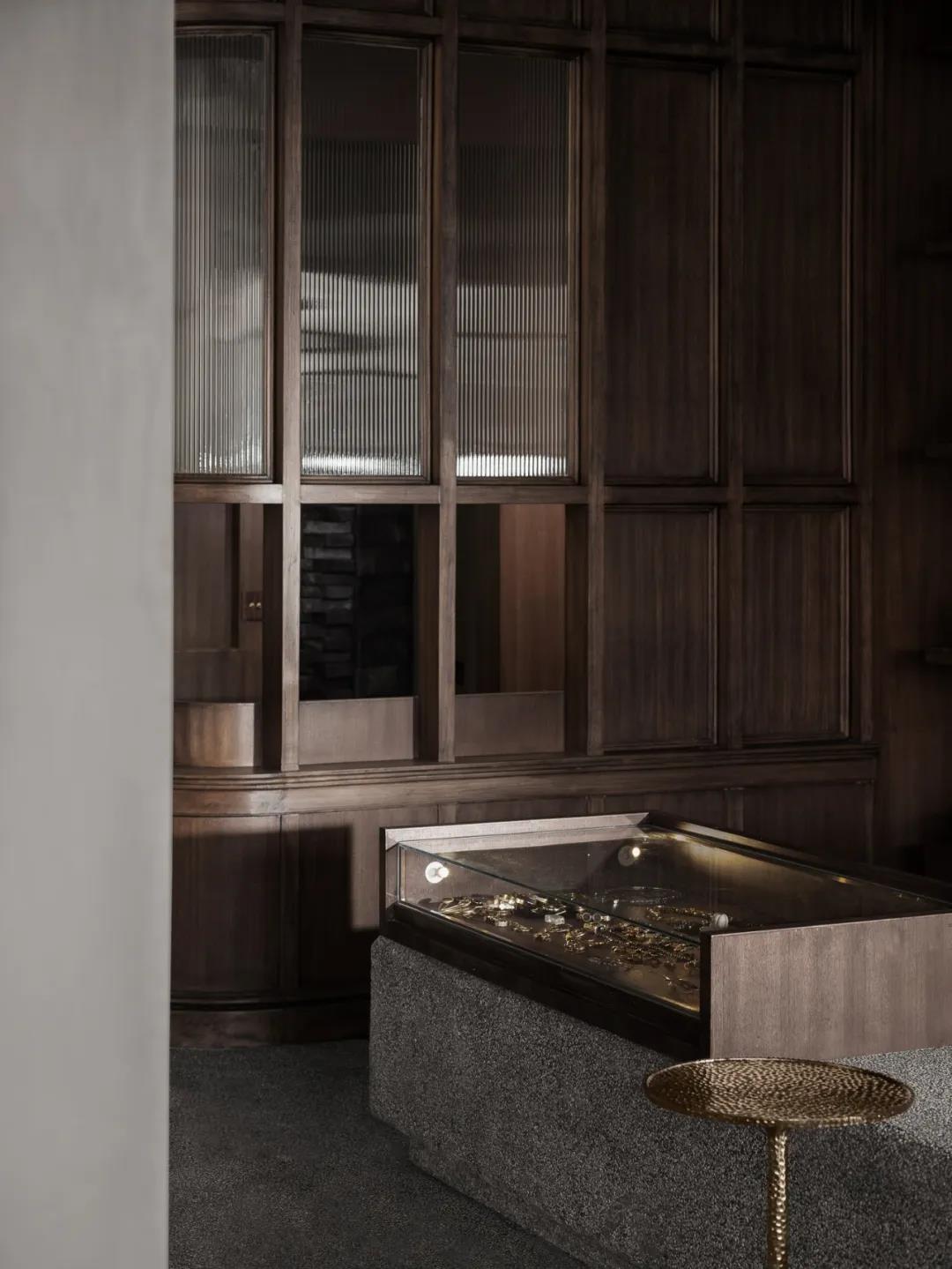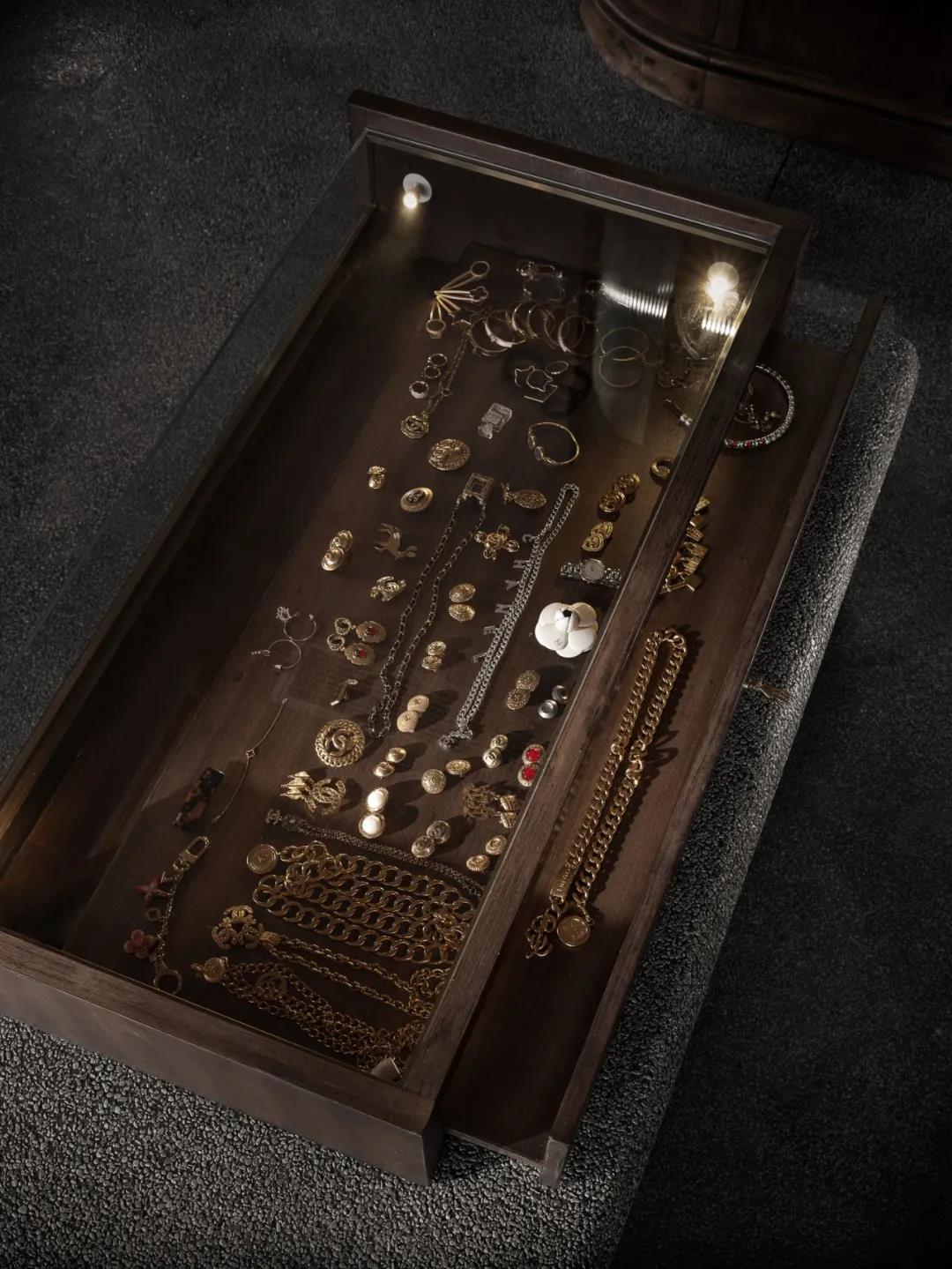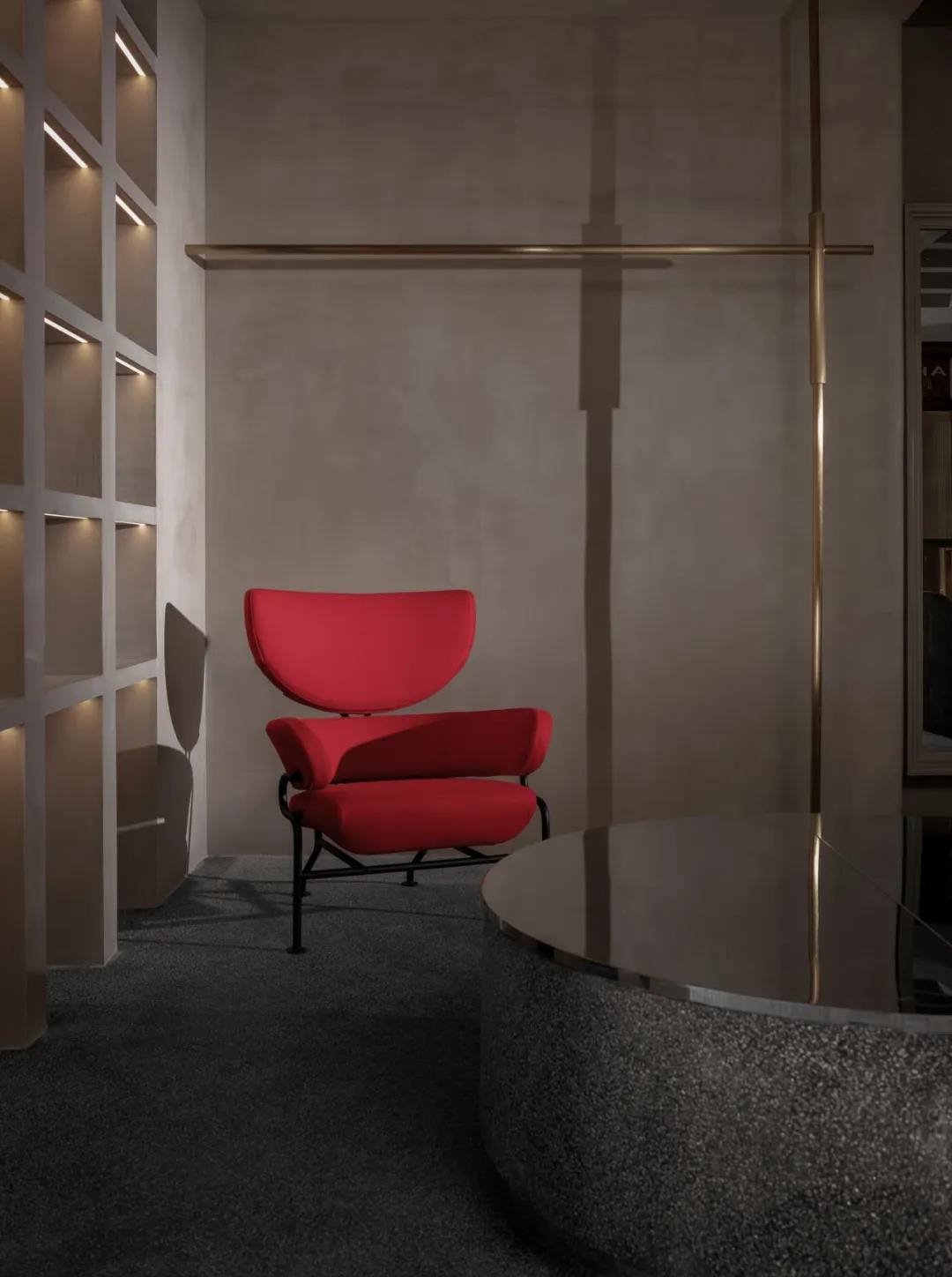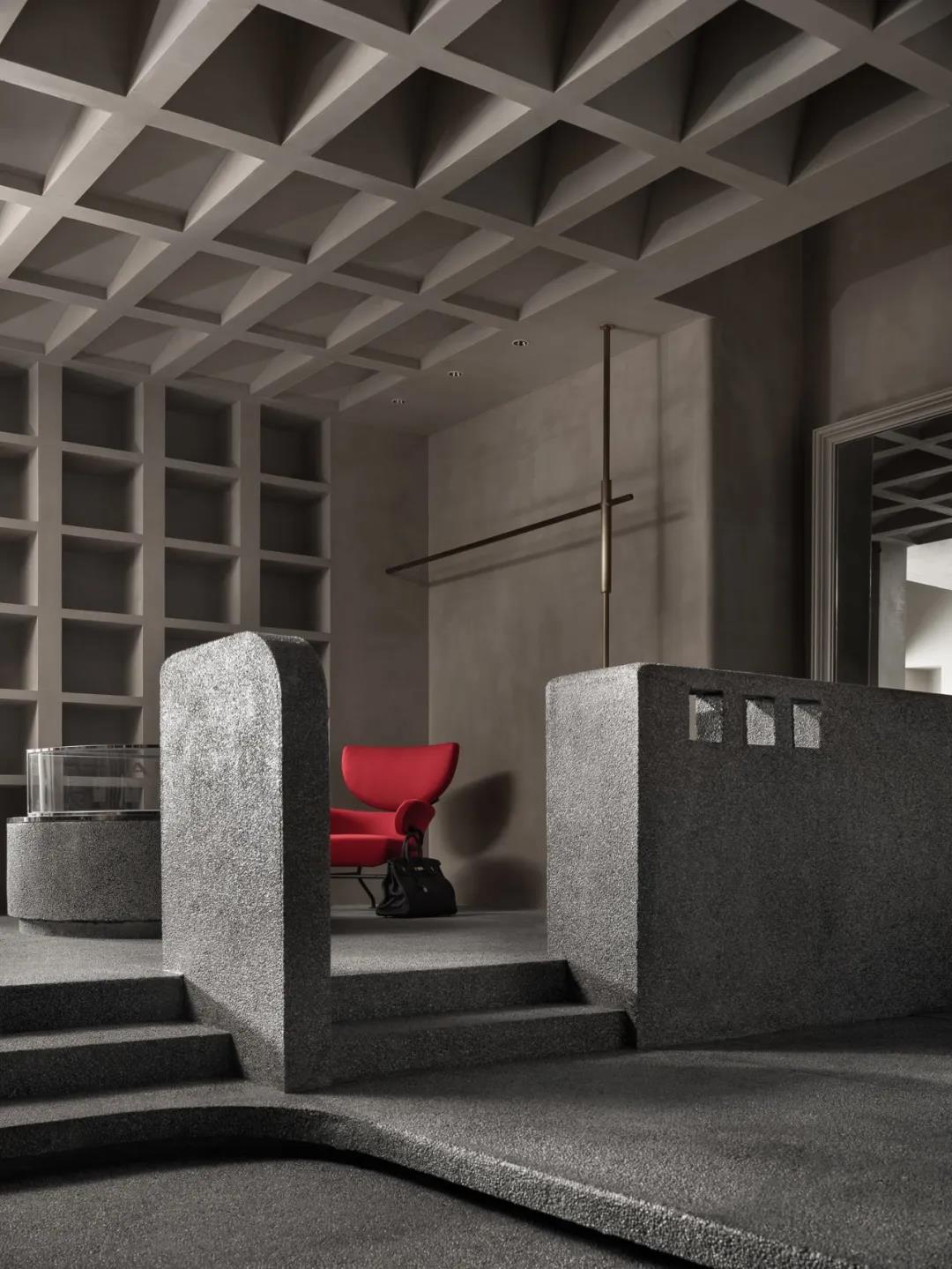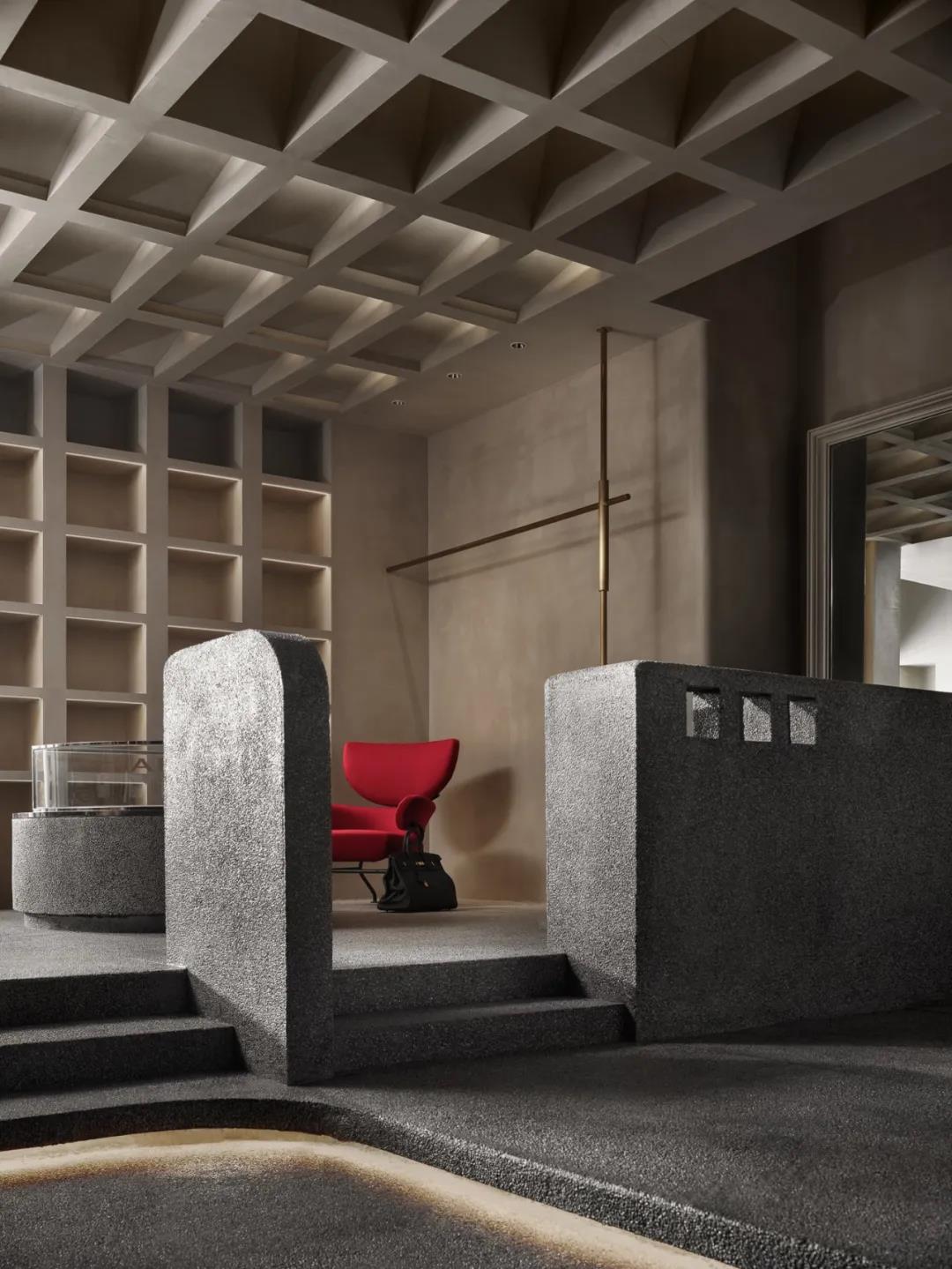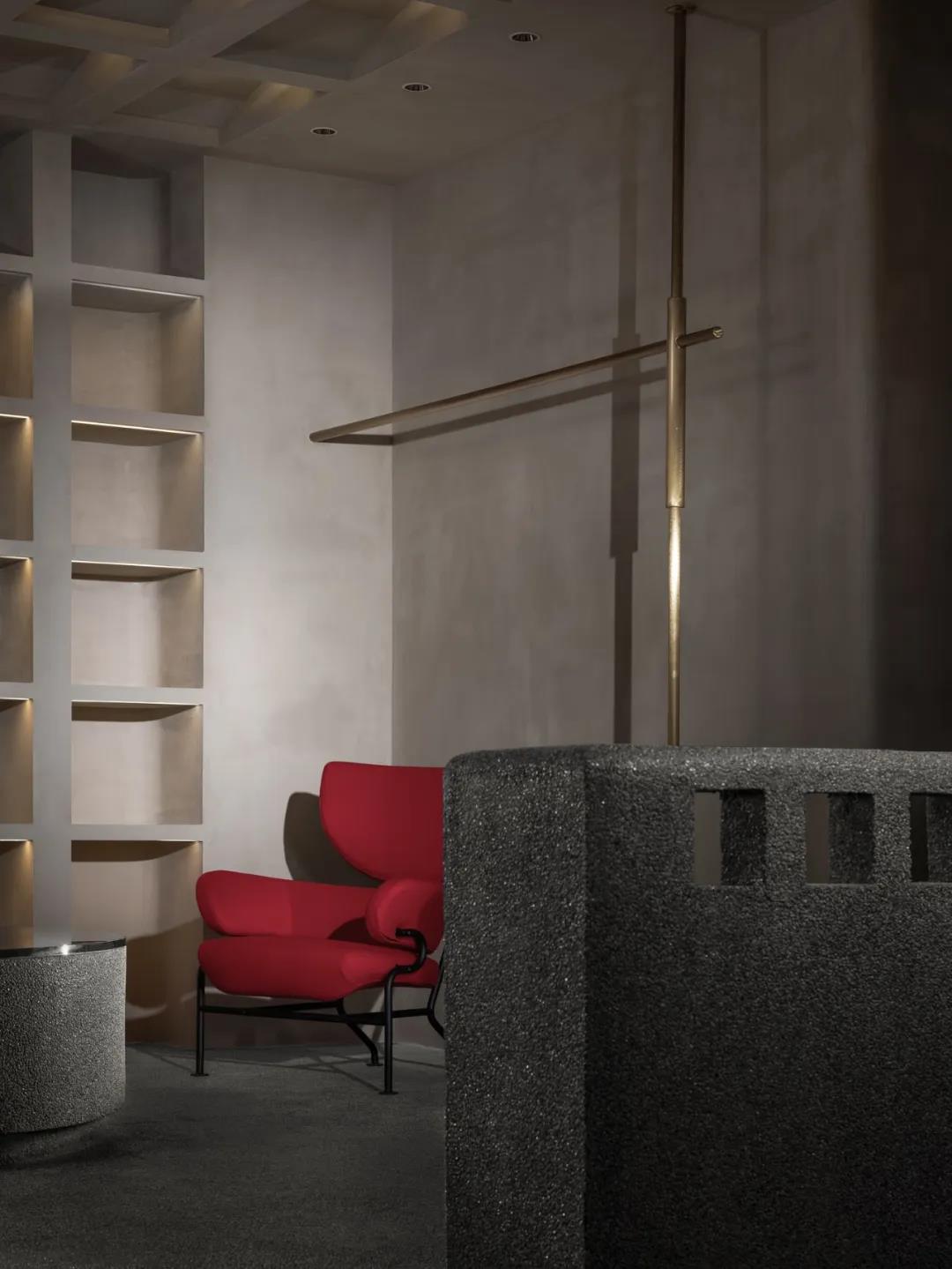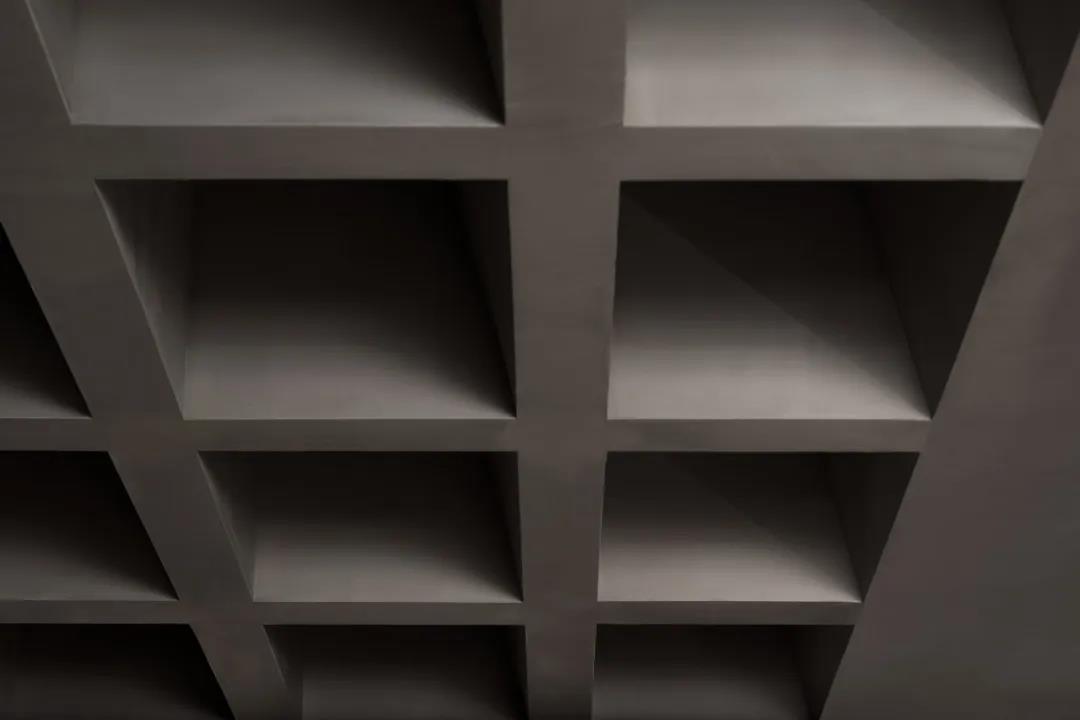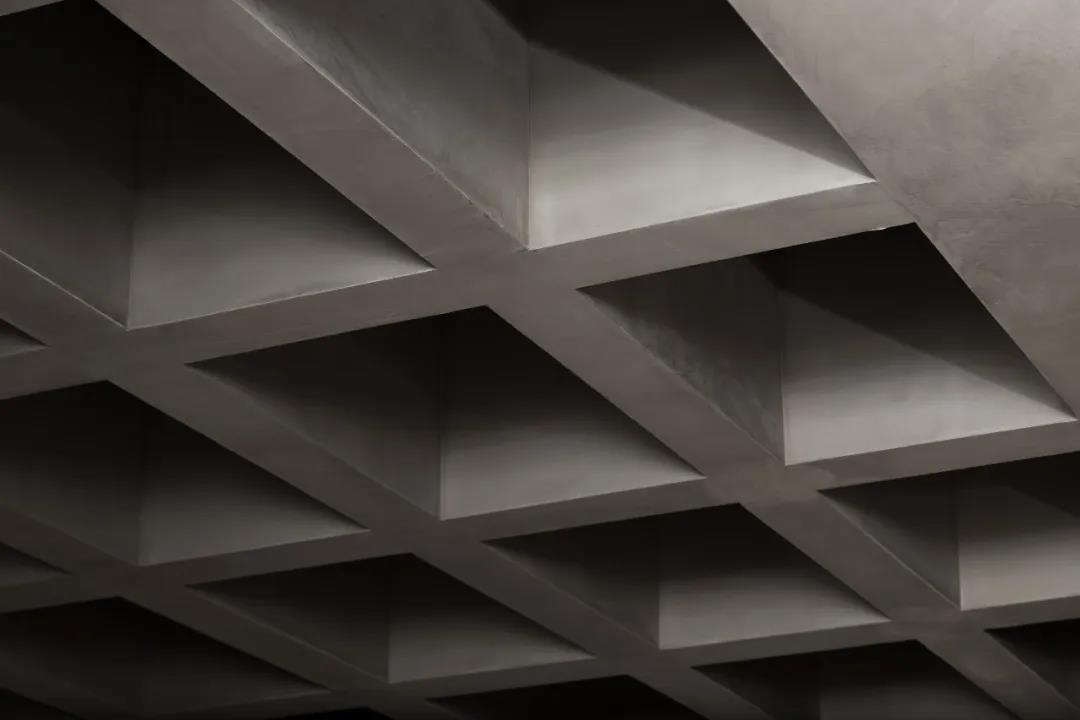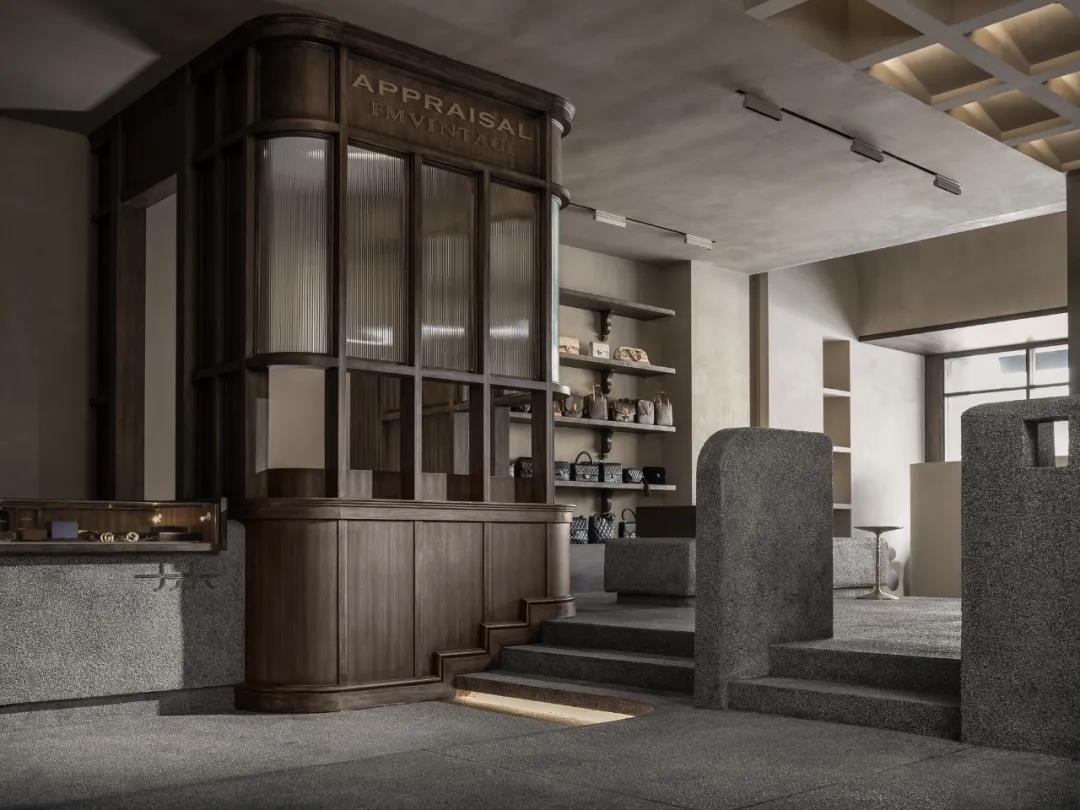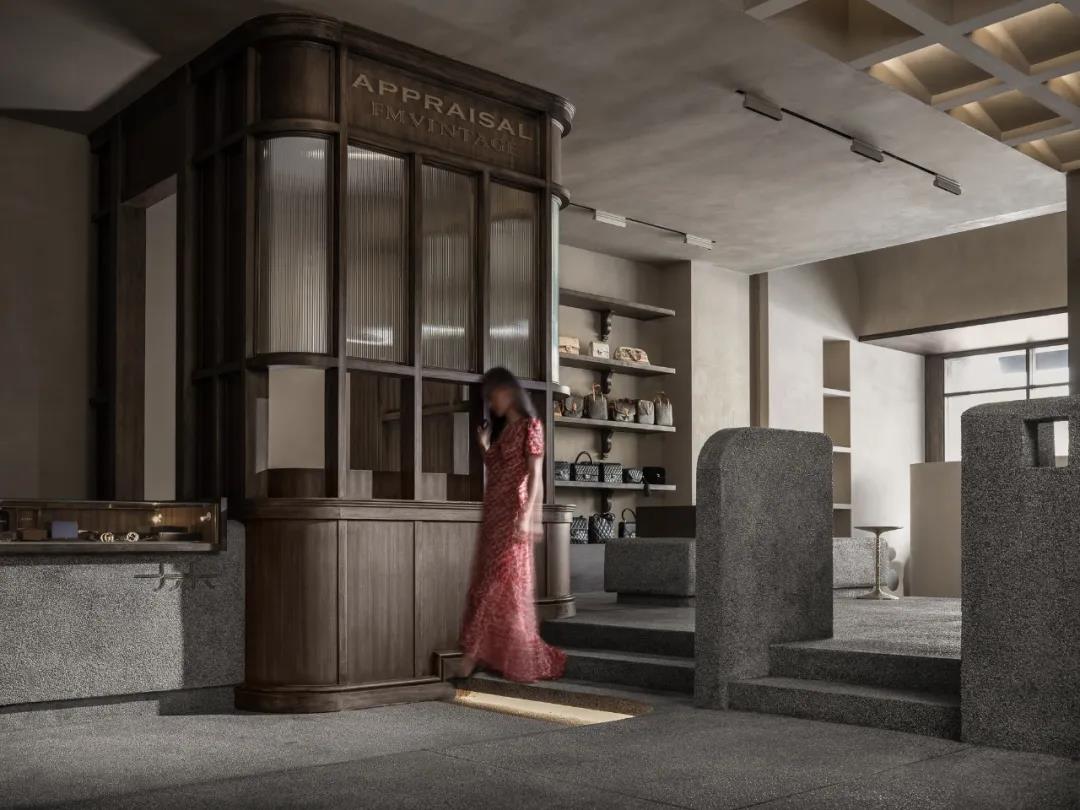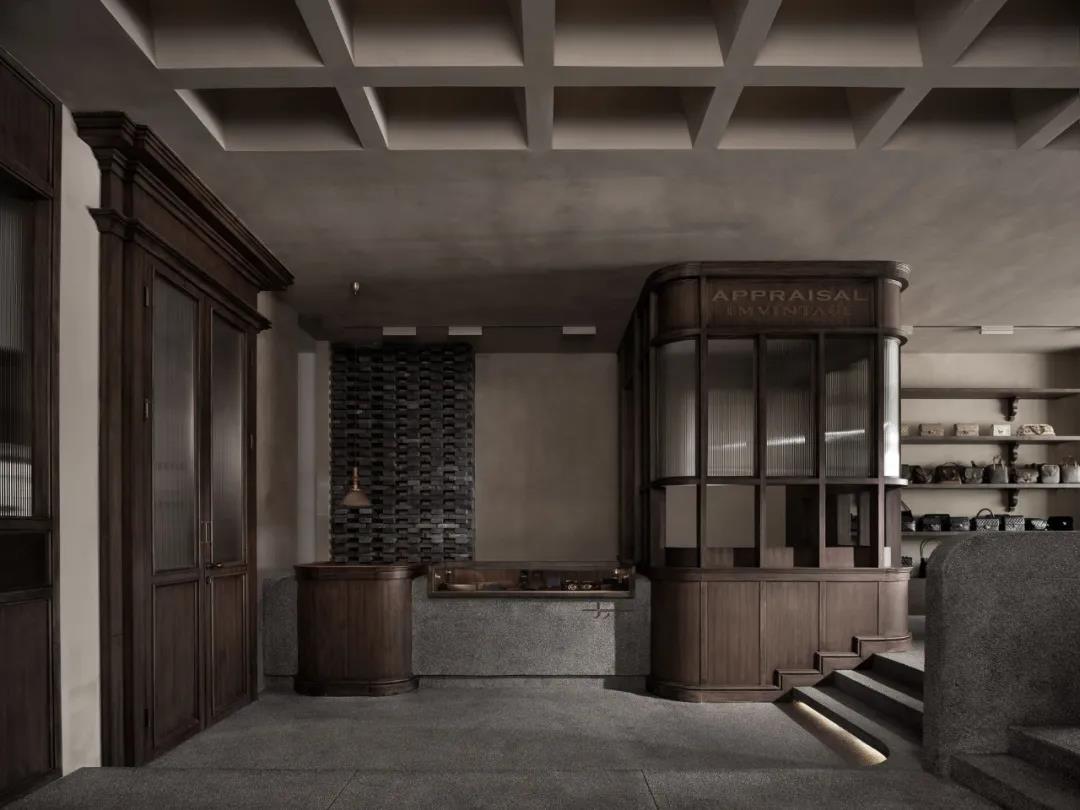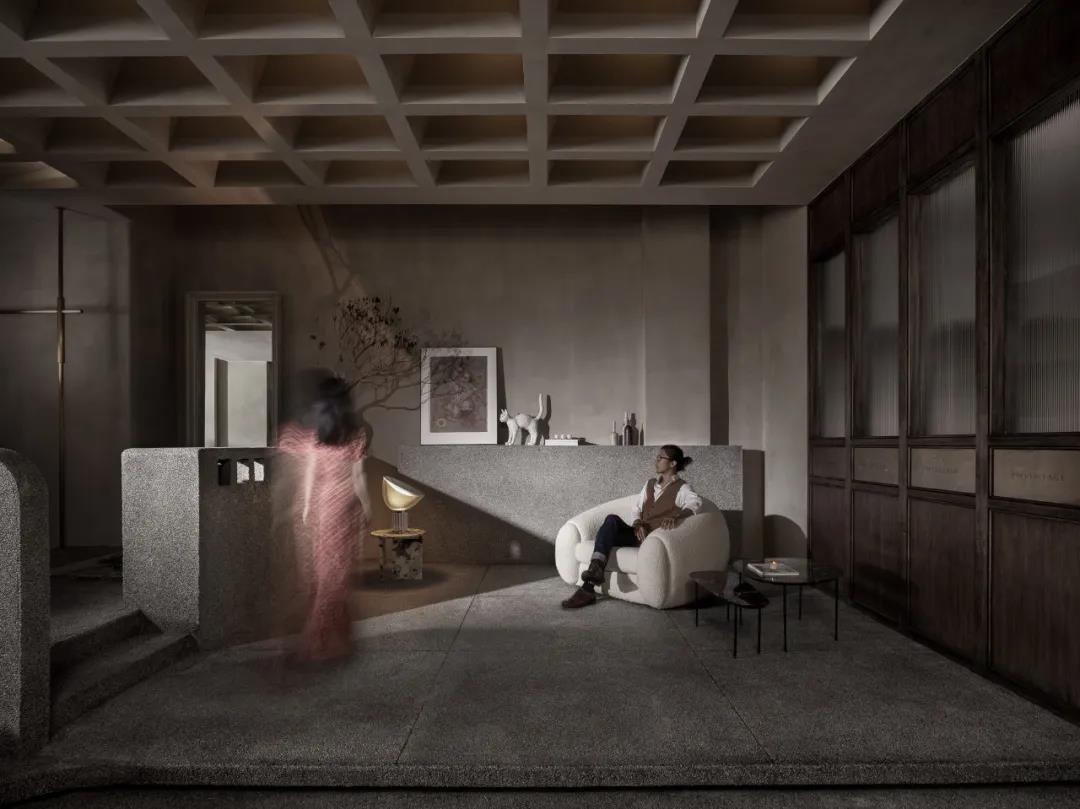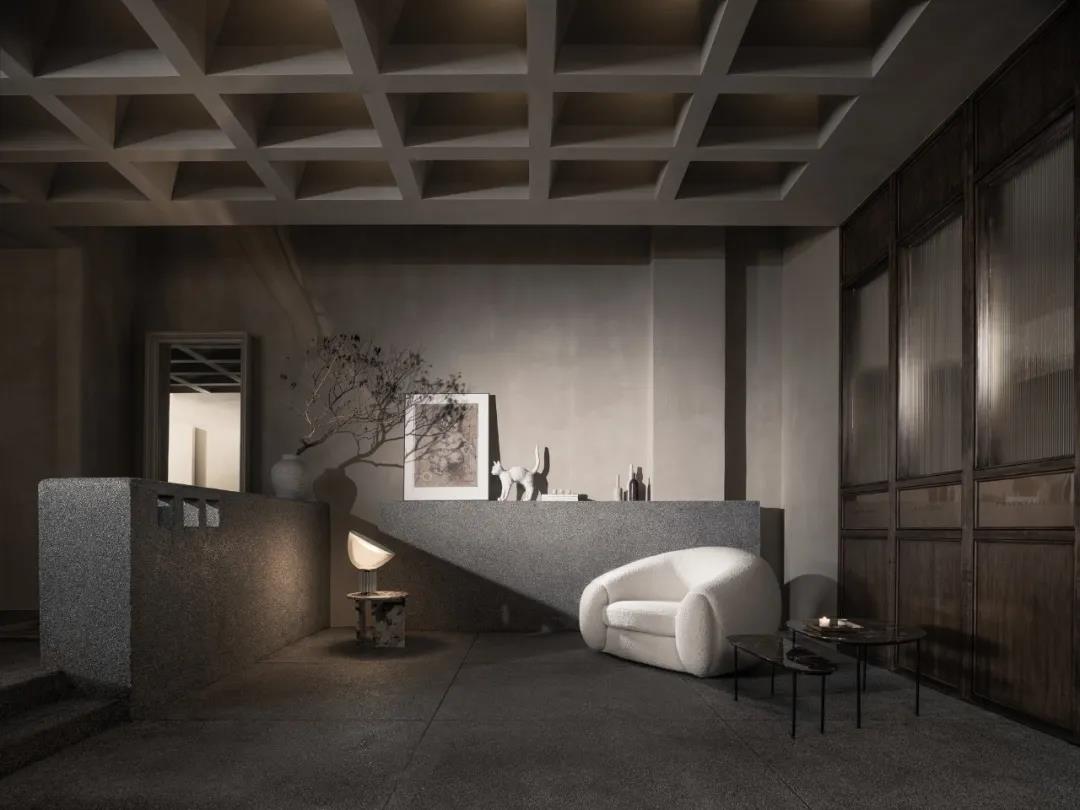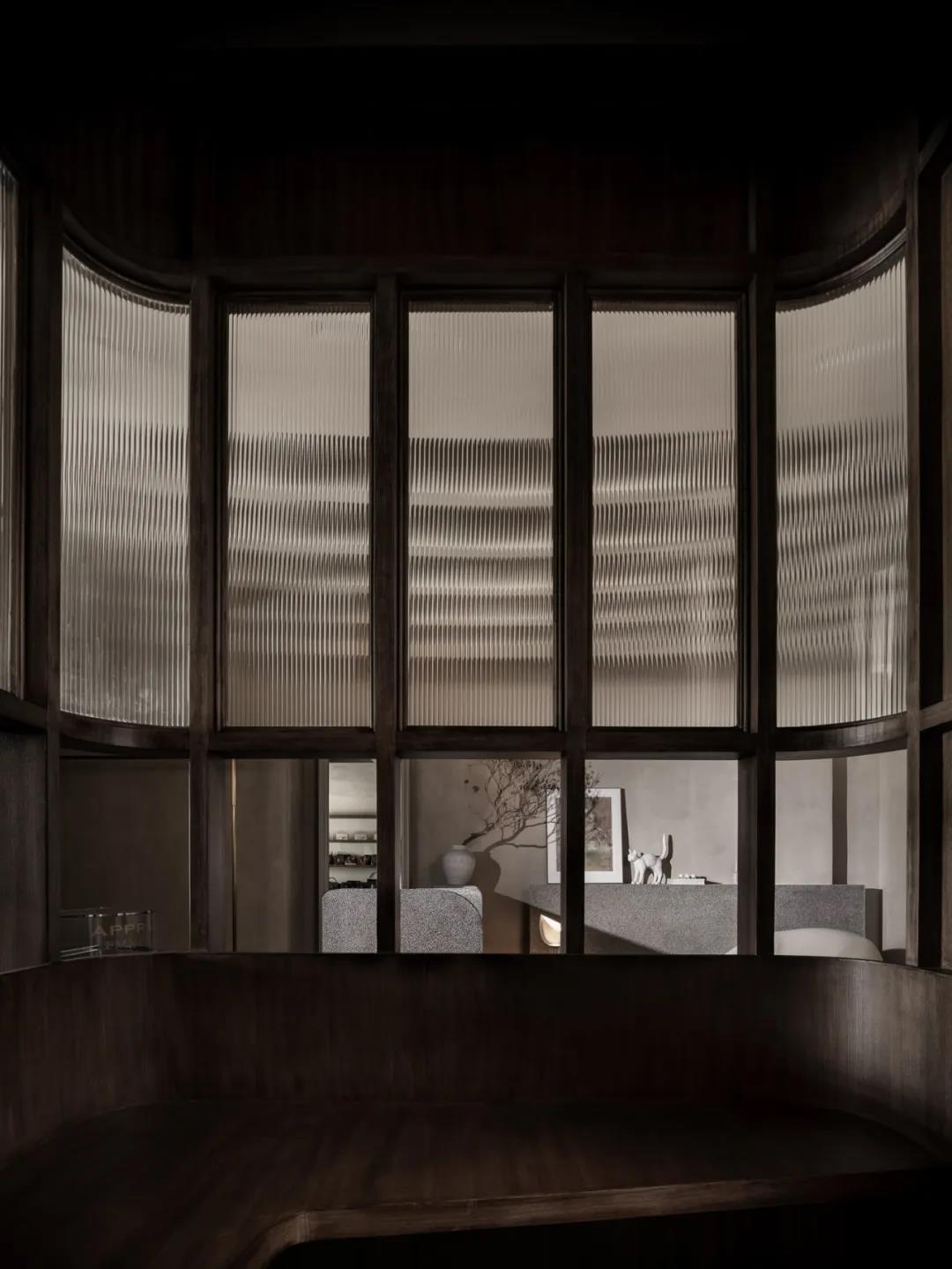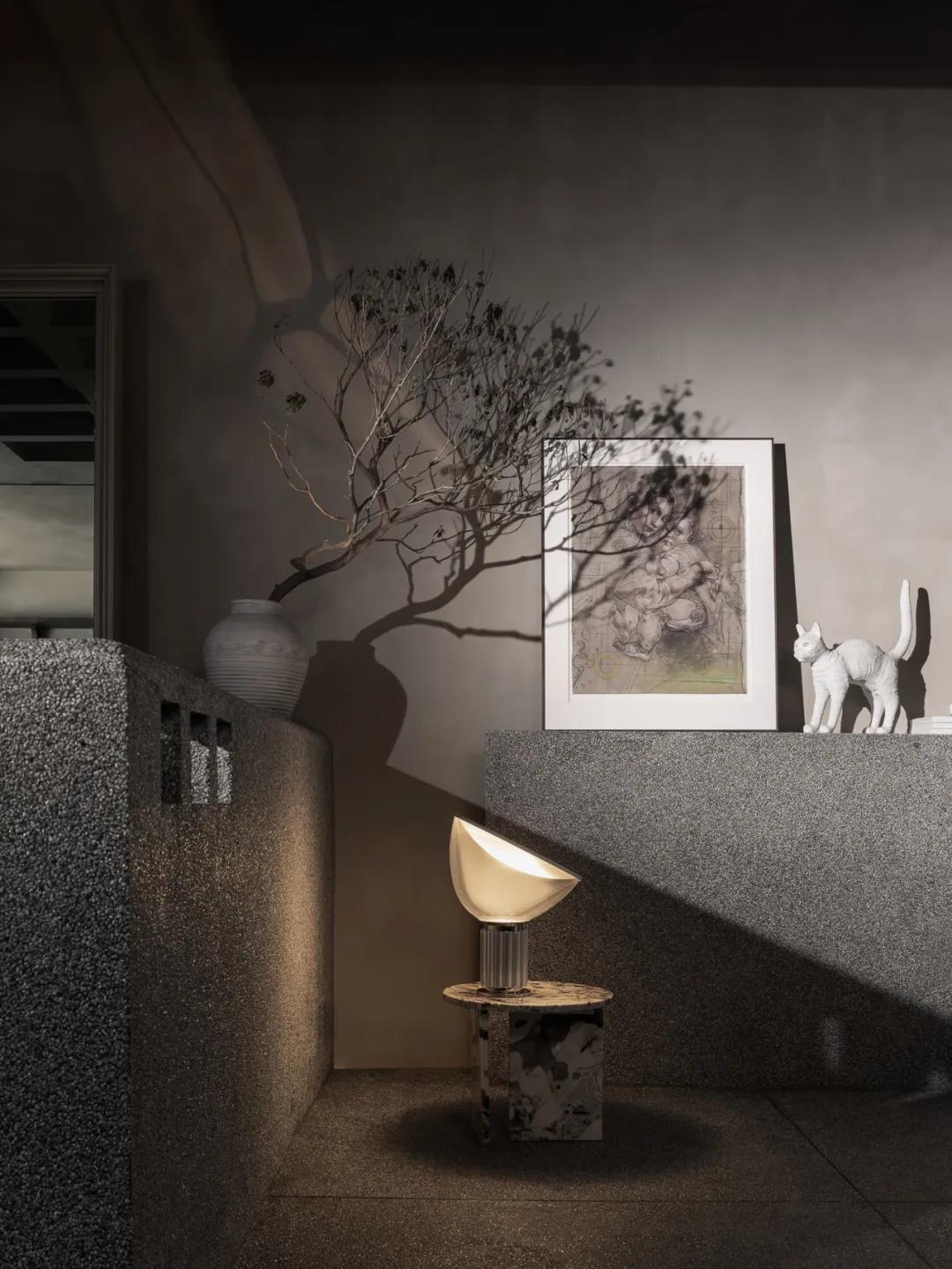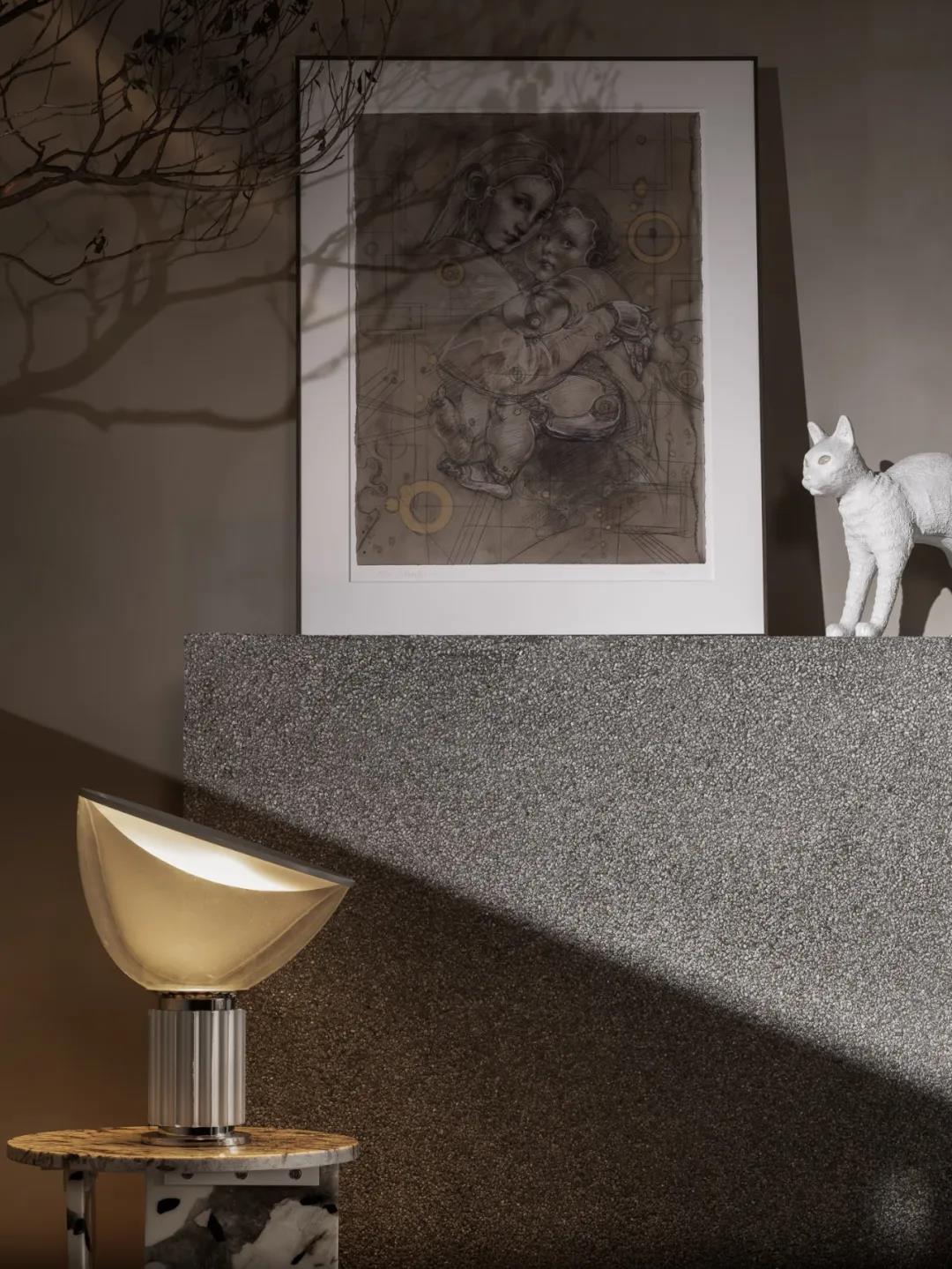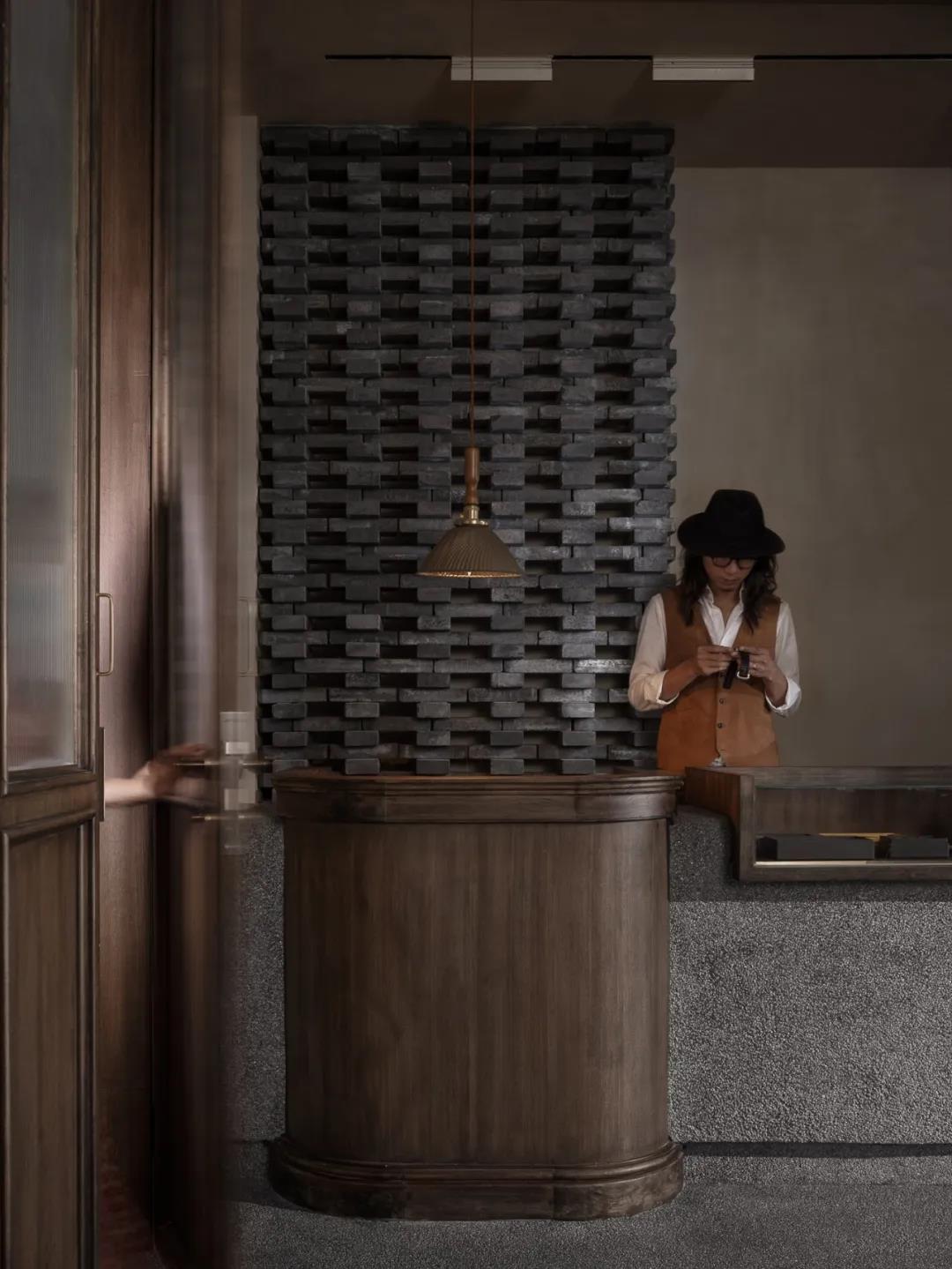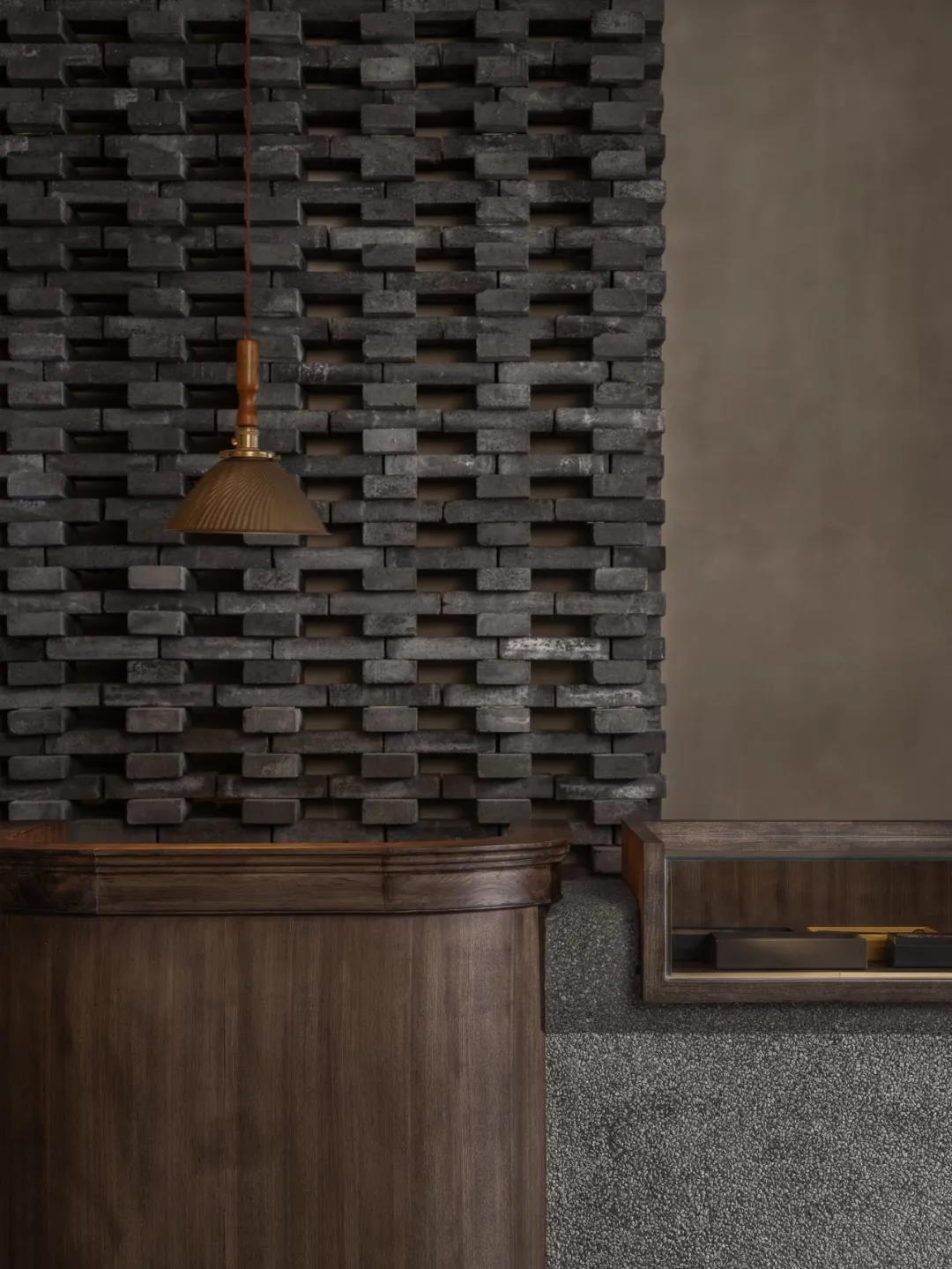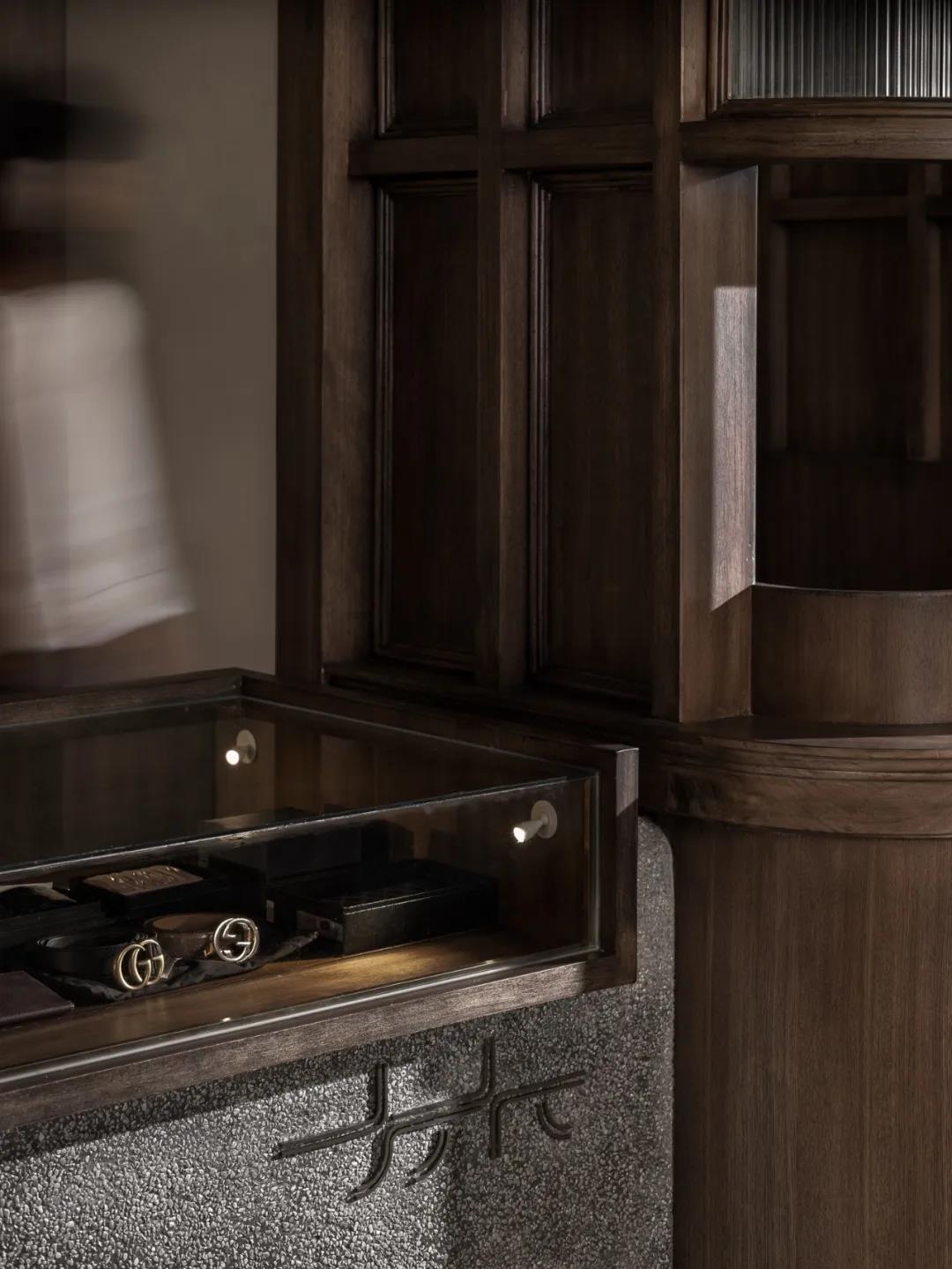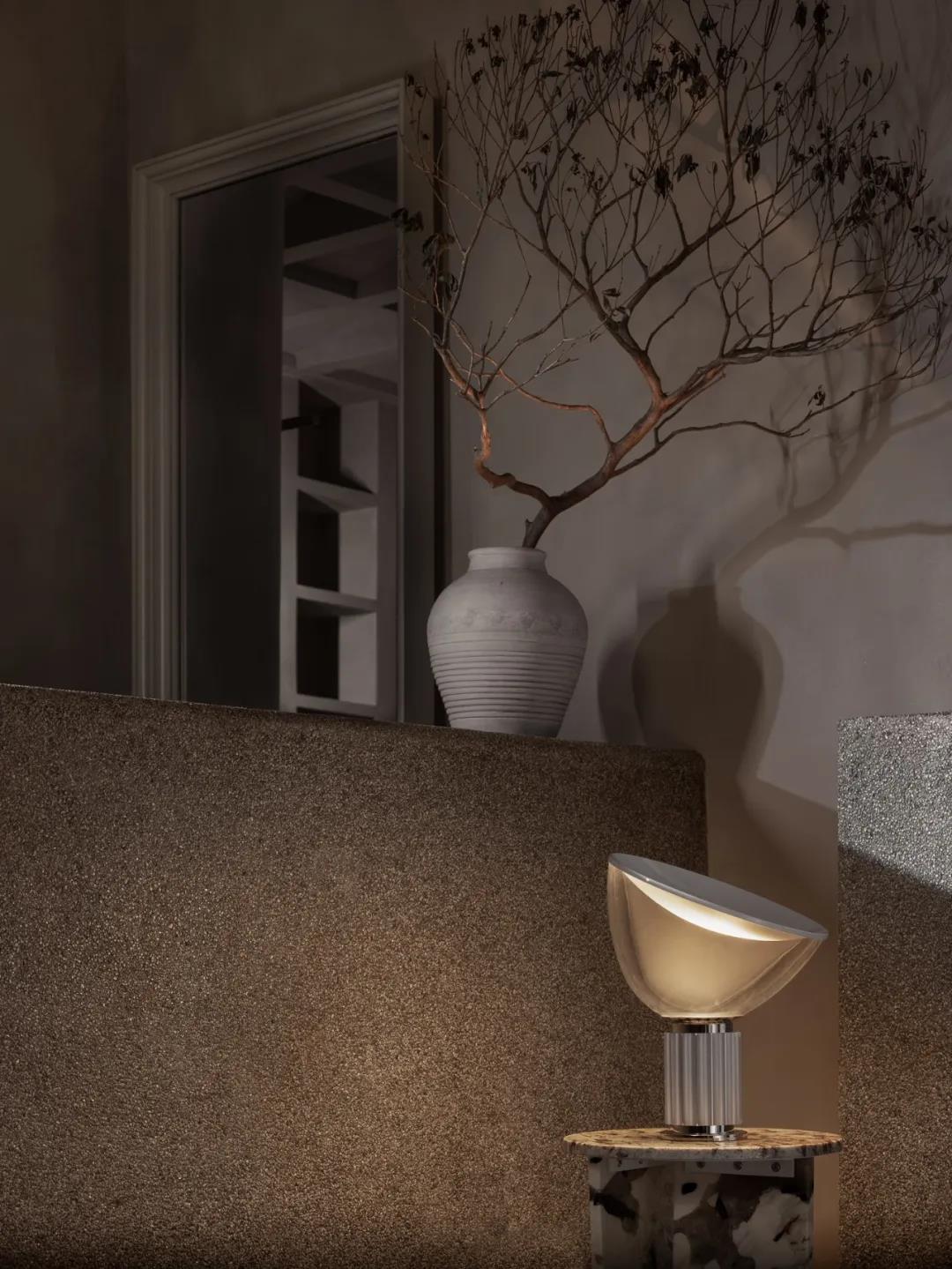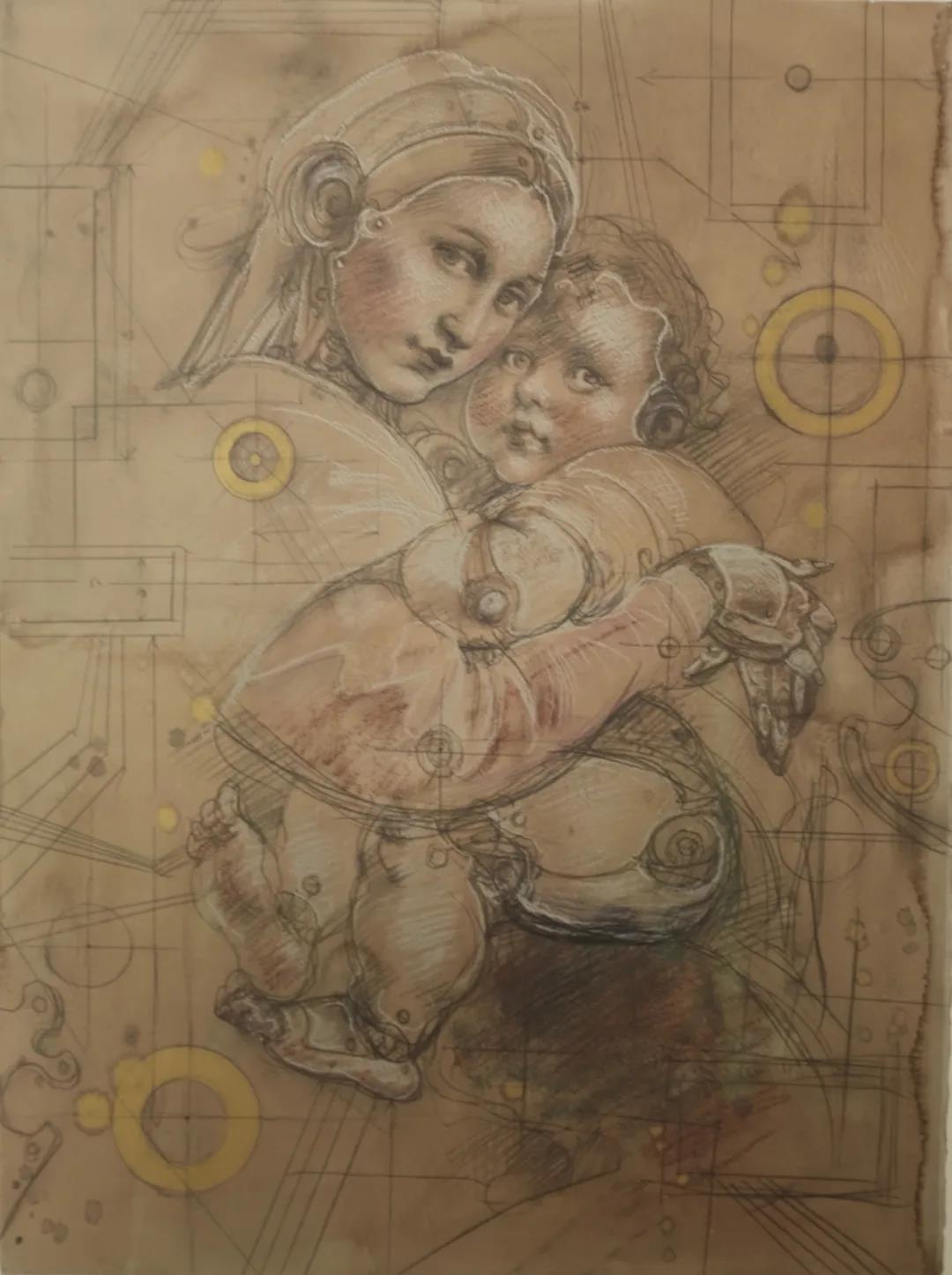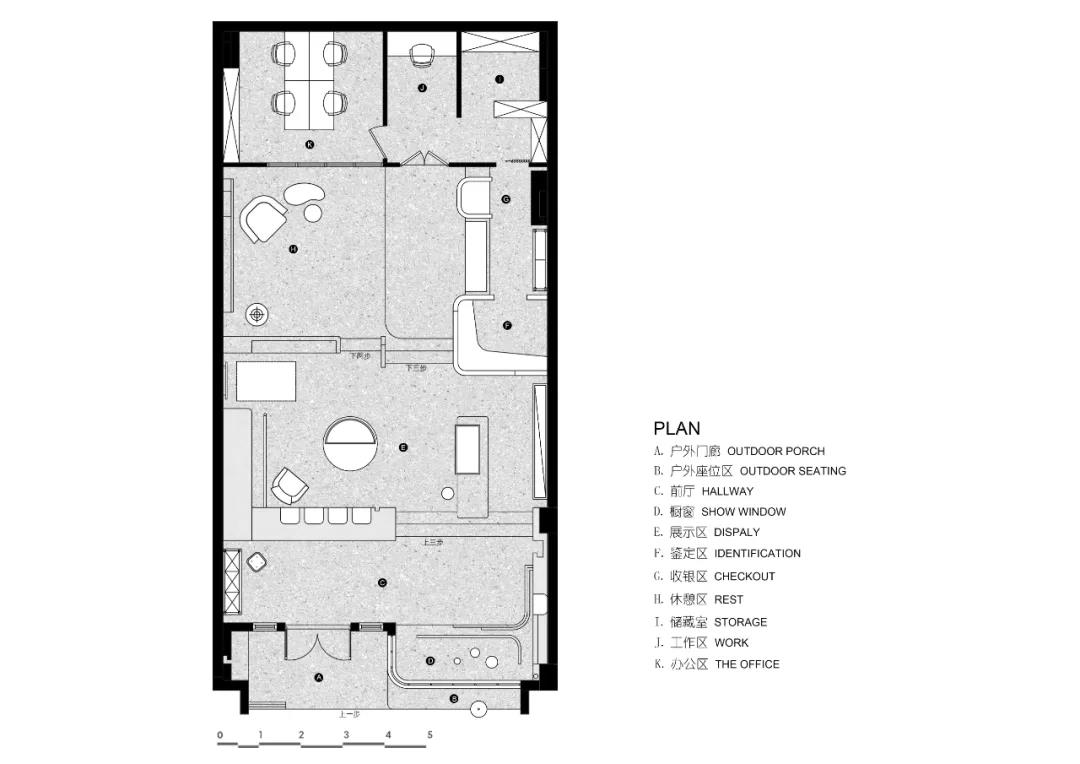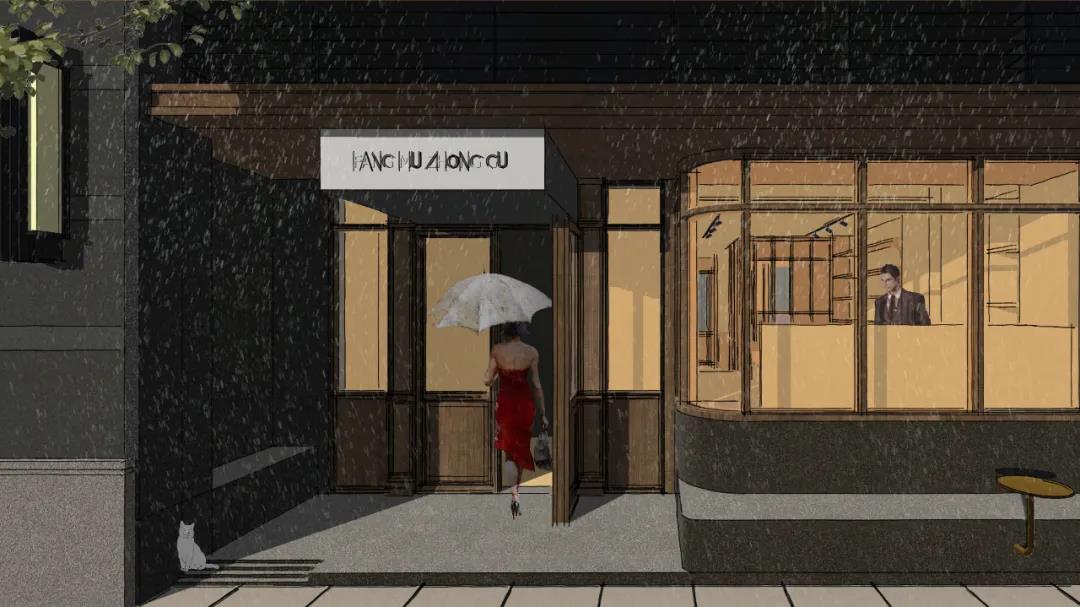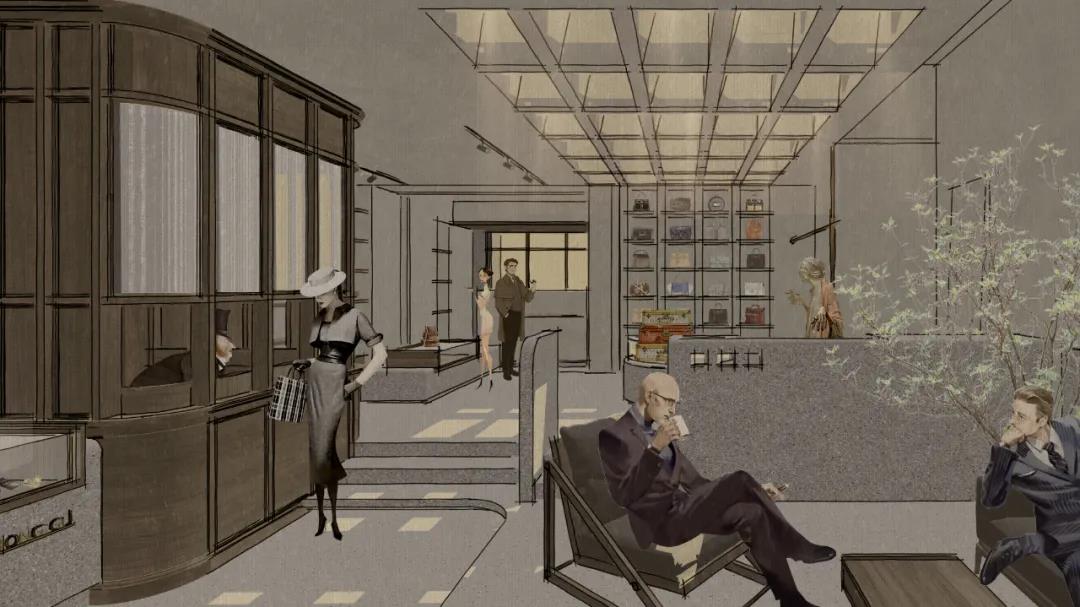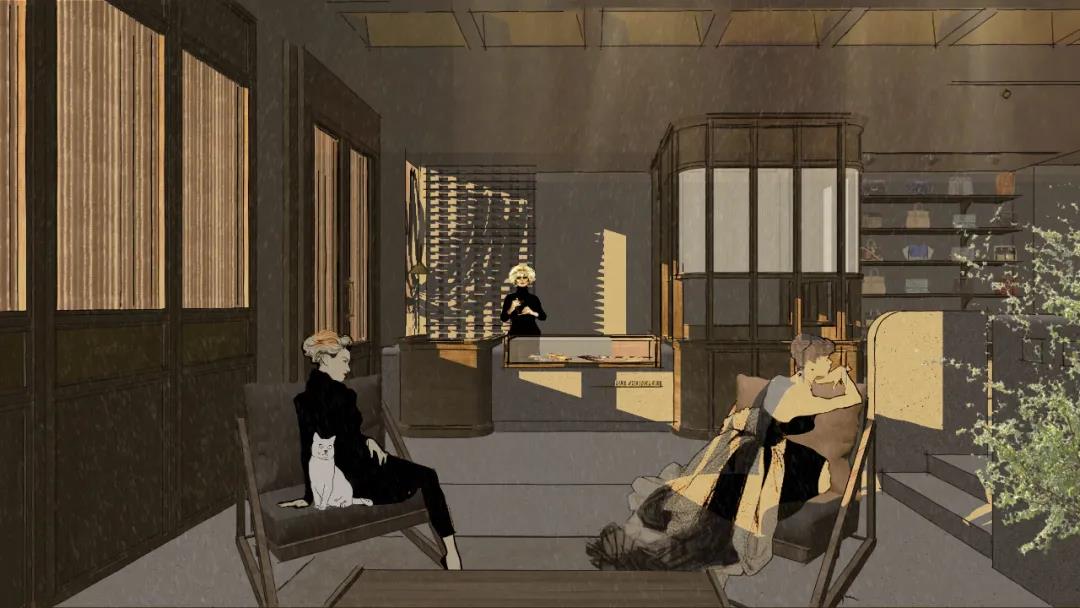遇见
不曾在预料之中的事情,总是充满未知与惊喜。
Not in the expected things, always full of unknown and surprise.
当方木中古的主理人(李志夫妇)带着项目找到我们的时候。我对“中古”这一概念还不曾有过一个较为完整的认知。如何做好一家中古店,如何传递中古背后的故事与价值,尤其如何削弱“中古”的舶来品意味而增强本土文化特性的在地融合,在中古店中呈现新的场景与范式,是我认为最值得深思且有趣的过程。
When FMVintage’s owner (Li Zhi and his wife) found us. I haven‘t even had a fairly complete understanding of concept of Vintage. There are some thoughtful points and interesting thought process. How to do a good job in a vintage store how to convey the stories and values behind it Especially, how to weaken their meaning of foreign products and enhance integration of local cultural characteristics. How to present new scenes and patterns in the ancient store.
中古
“中古”一词来源于日本。在日本文化中,“中古”是“二手”的意思,但又与“古董”的概念有所区别。具体来讲,“中古”指的往往是那些旧的、被使用过的,但又非常经典、值得收藏和使用的产品。
“zhonggu”, comes from Japan, means “Second-hand” or “Old-fashioned” in Japanese consciousness, which is different from the concept of antique. And “Vintage” we normally said is included in “Old- fashioned” often refers to products that are old, used, but extremely classic, worthy of collection and use.
日本是中古包市场最为盛行的国家。这归功于上个世纪七八十年代,日本经济飞速发展,国际奢侈品名牌大量涌入日本市场,并迅速被消费。这种奢侈品消费的现象也引发了二级市场的流通,即多数人会在使用过一定的周期后,把已不再时尚浪潮之尖的奢侈品包包进行二次的置换,又或是直接处理给二级流通市场,这就像一个追逐的游戏,并形成了一个迭代向下的循环。从而形成了如今庞大的中古市场。
The second-hand luxury goods is very popular in Japan.Thanks to Japan’s booming economy in the 1970s and 1980s, when they bought designer handbags as often as they bought snacks.Most people will replace or sell their existing bags and buy some new one,and replace,like a cycle.Thus formed the largest second-hand luxury market today.
正因为此,本土市场对中古的消费以及由此形成的中古文化,有着自己的解读。中古虽未达到古董的认知概念,但也远远超过了普通二手的认知,它依旧代表着某种有生命力的生活品味和生活方式,在这层意义上,中古与二手已然是截然不同的两个概念。于是,这就回到了消费者层面的思考。如果,中古的定义如此的微妙,那么,我们该以何种的姿态,去呈现一个内地还前所未有、市场认知还并不成熟的中古店呢?
But the local market has its own interpretation of vintage goods.Although it does not reach the cognition concept of antique, it is far beyond the cognition of second-hand.To some extent, the native vintage goods refused to be equated with second-hand goods.So, goes back to thinking at the consumer level.If the definition of ちゅうこis so subtle, then, How can we present a vintage luxury store that is unprecedented in mainland content with market recognition?
空间
既然,国内消费者对于中古的认知也介于二手与古董之间,又无法将中古奢侈品拉下物质的神坛。那么,在保证空间趣味性的同时,品质感需要得到一定的保证。
Since the cognition of Chinese consumers on vintage goods is between second-hand and antique.Vintage handbags cannot be classified as low-level goods. They are still luxury goods. Therefore, while keeping the space interesting, the sense of quality needs to be guaranteed.
要吸引他们走进来,坐下去,形成空间文化的感召力。退后的门头便是这样的思考逻辑,友善的空间关系,让过往的行人有了走进来的欲望。
Attract people in and sit down. The space in front of the door is such logic of thinking, friendly spatial relationship, let the passerby have the desire to walk in. Then, the corridor(hallway), do not decorate too many products. This is to create a sense of mystery.
而后的长廊,并未放置过多的产品。这是为了神秘感的营造。而这样的营造,只为让你充满好奇的再进一步。
And this kind of construction, only let you be full of curiosity further. The raised platform ensures the level and interest of the space, and sets the main product display area at the platform location.
抬高的地台,让空间的层次与趣味得以保证,且在地台的位置设置了主要的产品陈列区。高高在上的奢侈品包包正是迎合了消费者们的心理。
The position of the luxury bags cater to the consumers‘ psychology.
经过抬高的陈列区之后,下沉的空间被分成了三个组成部分。最里面的空间为办公及仓储的功能。
After an elevated display area, the sunken space is divided into three components.The innermost space is for office and storage functions.
靠右的区域则是吧台及维修检验区,满满的仪式感,则暗示着这些来自欧洲的名品昔日的辉煌。
The area on the right is the bar and goods maintenance area, full of ritual sense, indicating the former glory of these famous products from Europe.
而吧台对面则是宽敞舒适的休闲品鉴区。
Opposite the bar is a spacious and comfortable leisure tasting area.
选择
正如主理人选择这些中古产品一样,中古店的核心并非有多少的货源,而是在众多的中古产品中,挑选出那些精品无暇的尖货。恰到好处,正是方木的内核。室内亦是如此,在软装、艺术品、乃至装饰物料的选择上,我们也一直秉承着恰到好处的选择方式,化繁为简的处理手法。
As the owner of the choice of these vintage products, the core of the vintage store is not how many products they can supply, but pick out those exquisite flawless goods in those designer bags.Just right, just the core of FMVingtage. Interior space is also like that, We have always insisted on the appropriate treatment and selection of ways in soft outfit, artwork, even adornment material.
同时,不期而遇的主题概念,不仅指向消费者与中古产品之间的关系。也是我们整个空间设计的精神核心,这种不期而遇的状态更像是两个时代的碰撞。又或是两种设计语言的对话。老旧的中古产品在这里会遇见新的主人,重获新生,与另一个时代的产物迸发出新的火花。而传统的、古典的设计语言也会在这个当下与现代的、更加简练的设计语言产生新对话。我们便是选择用这一设计语言对整个空间进行重塑。
At the same time, the theme concept of Encounter, not only points to the relationship between consumers and vintage products.It is also the spiritual core of our entire space design, which is more like the collision of two generations.Or,a conversation between two kind of design languages.Time-stamped vintage products will meet new owners, be reborn, and have a new spark with products from another era.The traditional and classical design language will also have a new dialogue with the modern and more concise design language.We use this kind of design language to reshape the whole space.
首先,在装饰形式上,我们将西方古典元素用于功能性的结构设置之中,比如门窗、橱窗、隔断、吧台、陈列等区域。
First of all, in the form of decoration, we use western classical elements in functional structural Settings, such as doors , windows, partition, bar, display areas,etc.
而在空间结构的重塑上,则大量运用到现代、干练的处理手法。从某种意义上讲,这两种处理手法的逻辑关系一定是矛盾且冲突的。
And in the remodeling of the spatial structure, a large number of modern and high-efficient processing techniques. In a sense, the logical relationship between these two processing techniques must be contradictory and conflicting.
而我们却极力想要把这种矛盾与冲突放置在一起,我们希望这两种语言能真正的产生某种有意义的对话。
But we try to put these contradictions and conflicts together, and we want these two languages to actually produce some kind of meaningful dialogue.
时代向前,也并非是遗忘过去,我希望用我的方式去重新审视。所以,精致的木作、线条、造型也可以与裸露、简洁的水洗石、墙壁共处一室。而这样的状态是不违和的,甚至有种奇妙的味道。
Moving forward is not about forgetting the past. I want to reexamine it in my own way. Therefore, delicate wood works, lines and shapes can coexist with bare and simple washed stones and walls.And such a state is not inconsistent, even a wonderful taste.
其次,在软装的选择上我们摒弃了统一风格产品扎堆的处理方式。而是以一个买手的姿态去挑选适合的家具产品。从Franco的Tre pezzi扶手椅,到Jean Royere的大白熊,再到当代传奇设计师Philippe Starck的经典三足椅。无一不是向经典致敬。而flos的灯具与cc-tapis的地毯则是当下产品设计中的典范。我们将其整合在一起,在这个既冲突又奇妙的空间里,趣味横生。
Secondly, in the choice of soft outfit, we abandoned products with unified and popular style.But to a buyer’s attitude to choose suitable furniture products. From Franco‘s Tre Pezzi to Jean Royere’s Polar-bear to the legendary contemporary designer Philippe Starck‘s classic Costes Chair. All are salutes to the classics. Flos lamps and CC-Tapis carpets are examples of current product design. We put it all together, and it’s interesting in this conflicted and wonderful space.
▲《不期而遇》
最后,我想用空间中,当代艺术家庞茂琨先生的画作《不期而遇》作为结语。不期而遇系列,是庞茂琨先生对于文艺复新时期的一种回想,即是传统的继承与研究,又是新时代的延续与探索创新。他以自己的身份去看待古典与当代的发展结合。而这正与中古店的设计思考不谋而合。我们作为设计者,也在用自己的视角看待这个产业、消费关系与建筑载体。发展,本身就不止是向前看,有时候,回回头,就会有不期而遇的美好。
Finally, I would like to conclude with the painting “Encounter” by contemporary artist Mr. Pang Maokun in this space.The series of Encounters is Mr. Pang‘s recollection of the Renaissance period, which is the inheritance and research of tradition, as well as the continuation and exploration and innovation of the new era.He looked at the combination of classical and contemporary development with his own identity.And this coincides with the design thinking of FMvintage.As designers, we also look at this industry, consumer relationship and architectural carrier from our perspective. Development, is not only looking forward, sometimes, looking back, there will be unexpected wonderful things.
▲空间爆炸图
▲平面图
项目信息——
项目名称:方木中古
设计方:重庆简璞装饰设计有限公司
项目设计&完成年份:2019年10月-2020年05月
主创:文超
软装设计:文超、杨旭、YSCASA”
项目地址:重庆·渝北区·照母山社区
建筑面积:128
摄影版权:刘星昊
合作方:璞造装饰
客户:重庆方木中古商贸有限公司
主要用材:水洗石,实木,质感漆


